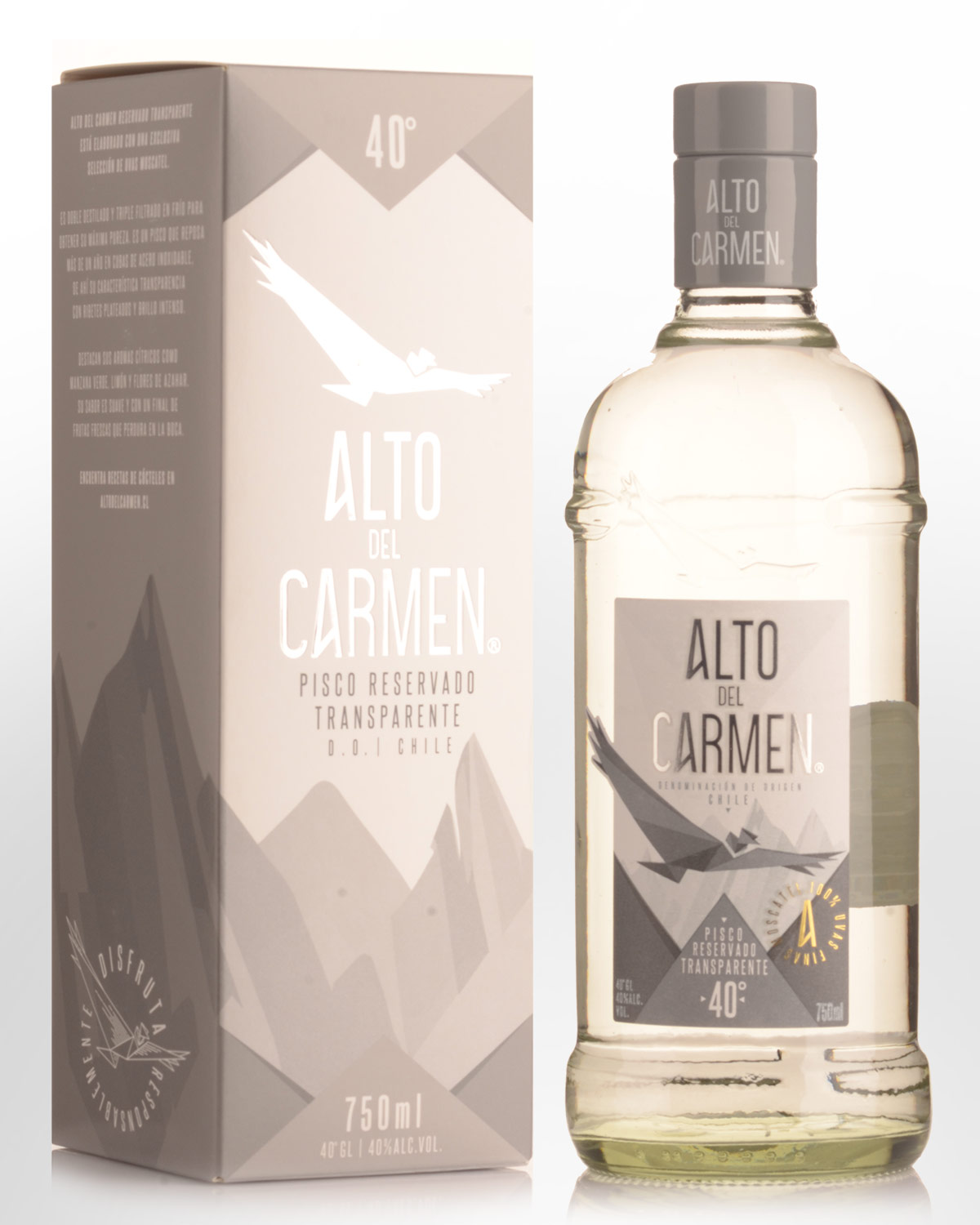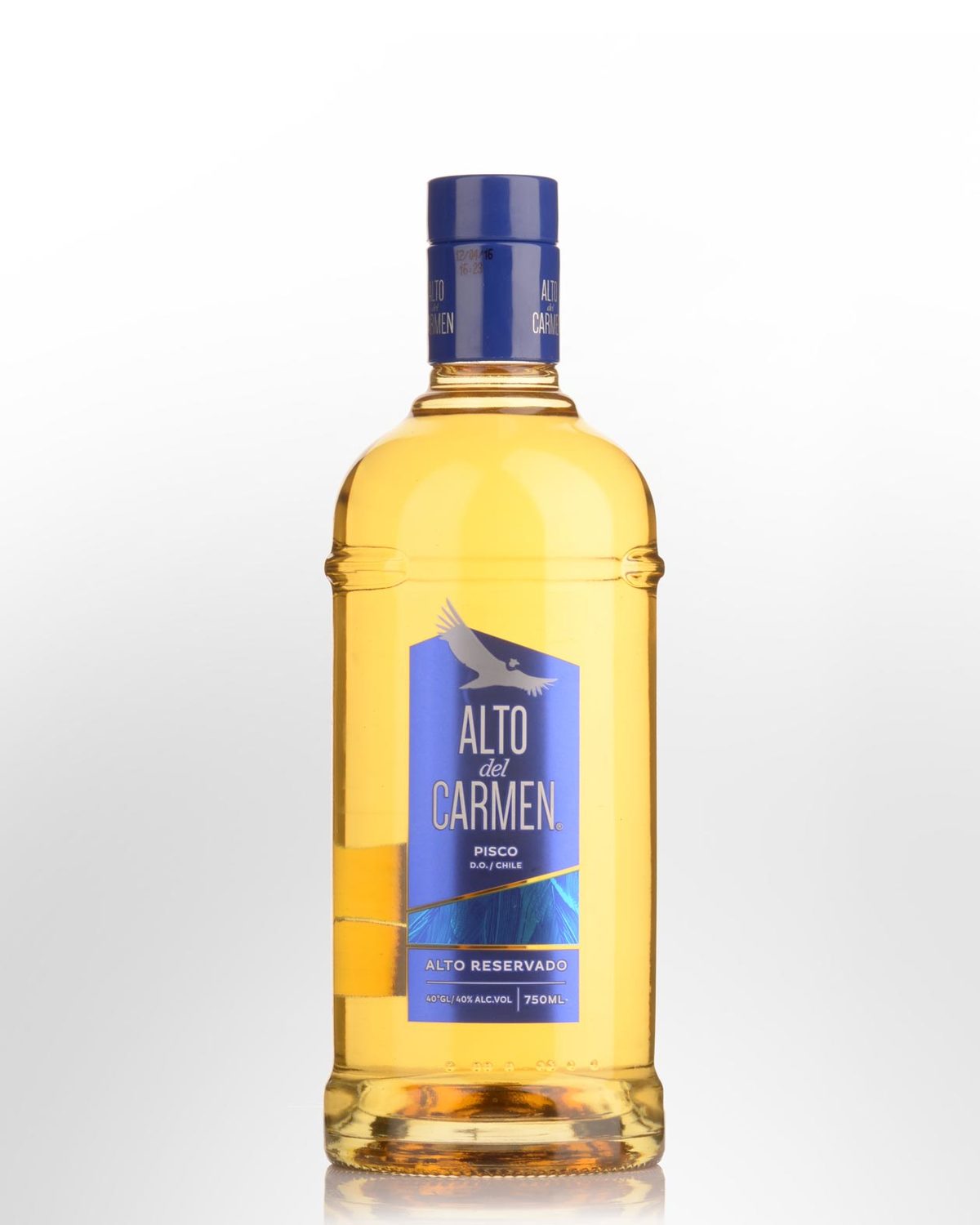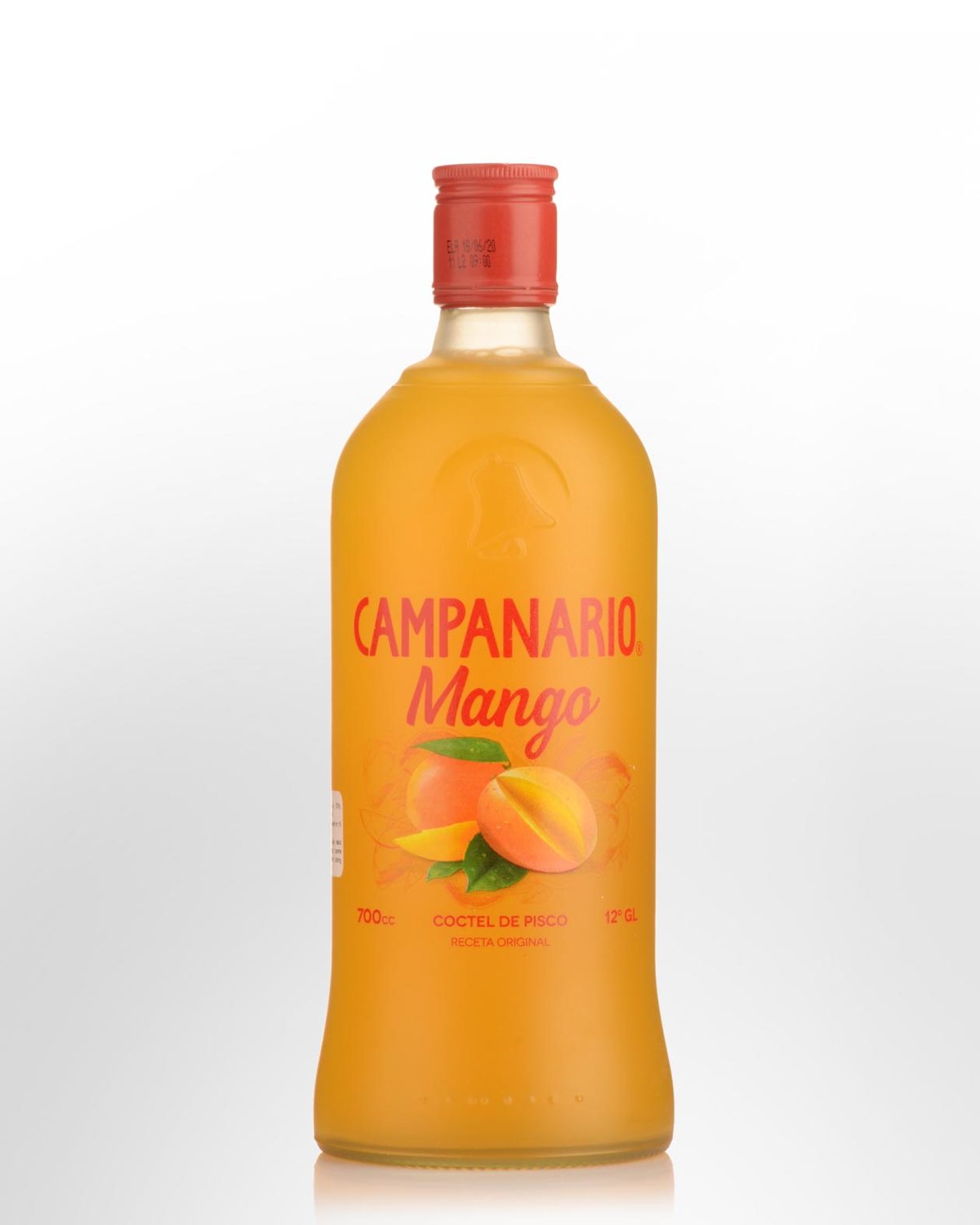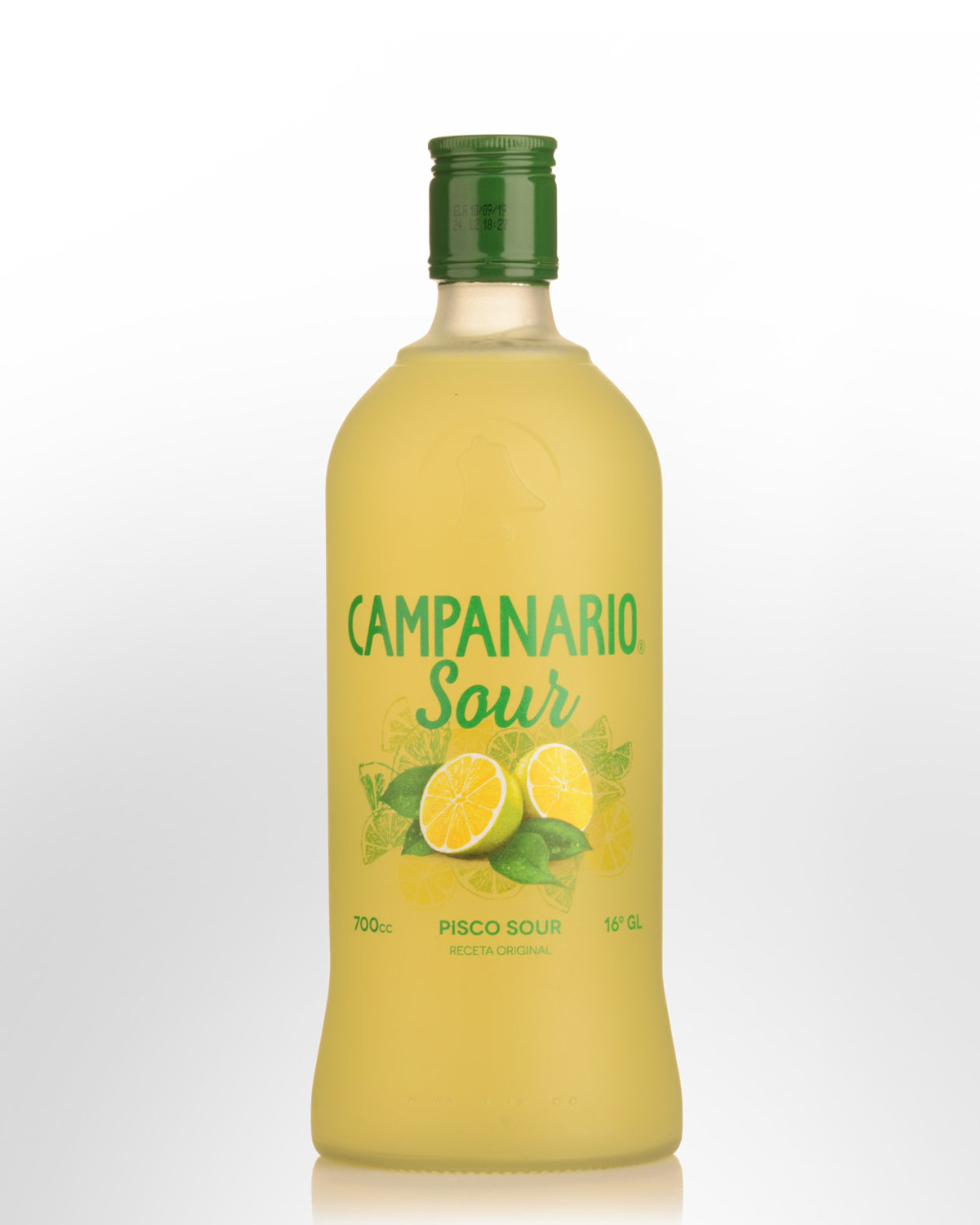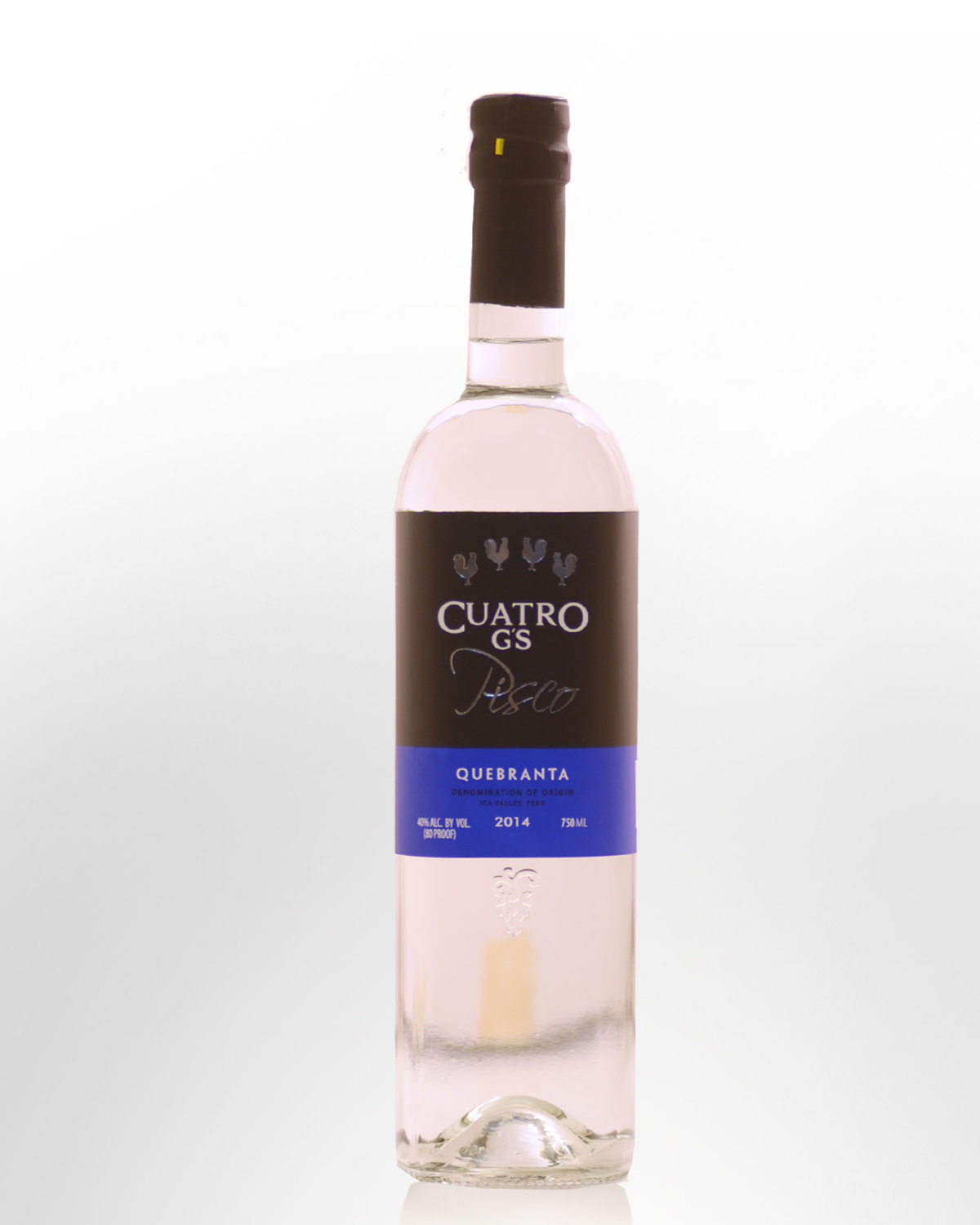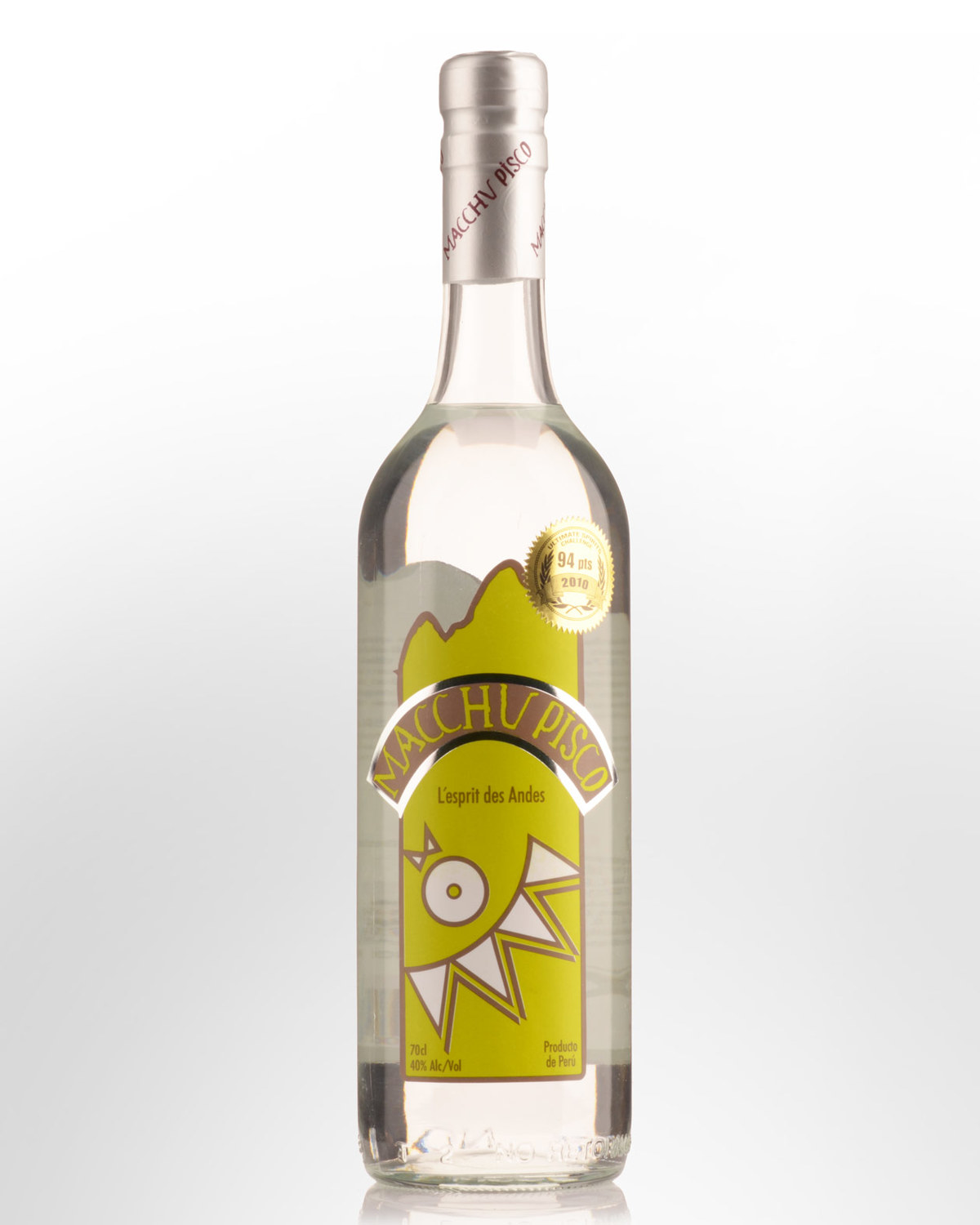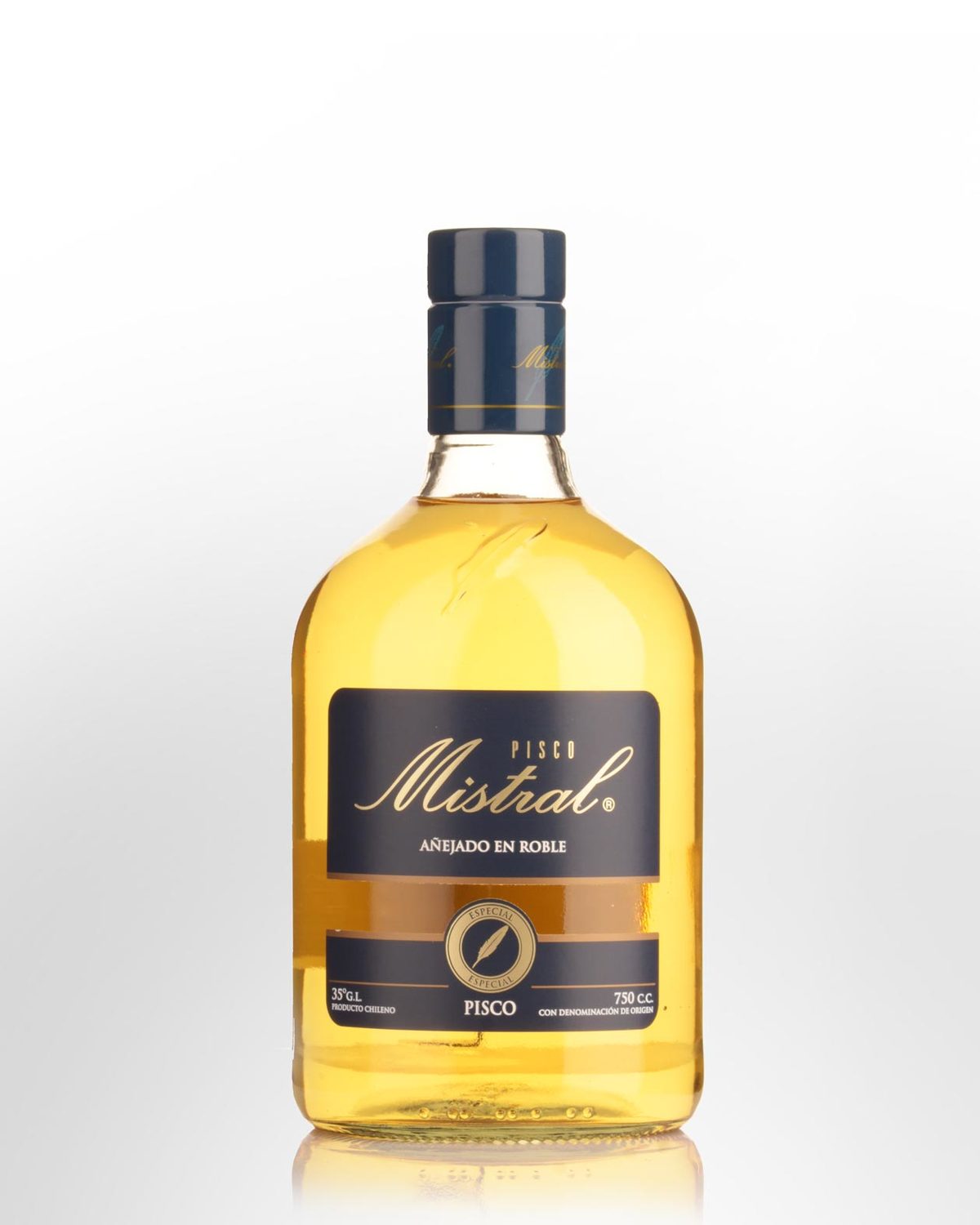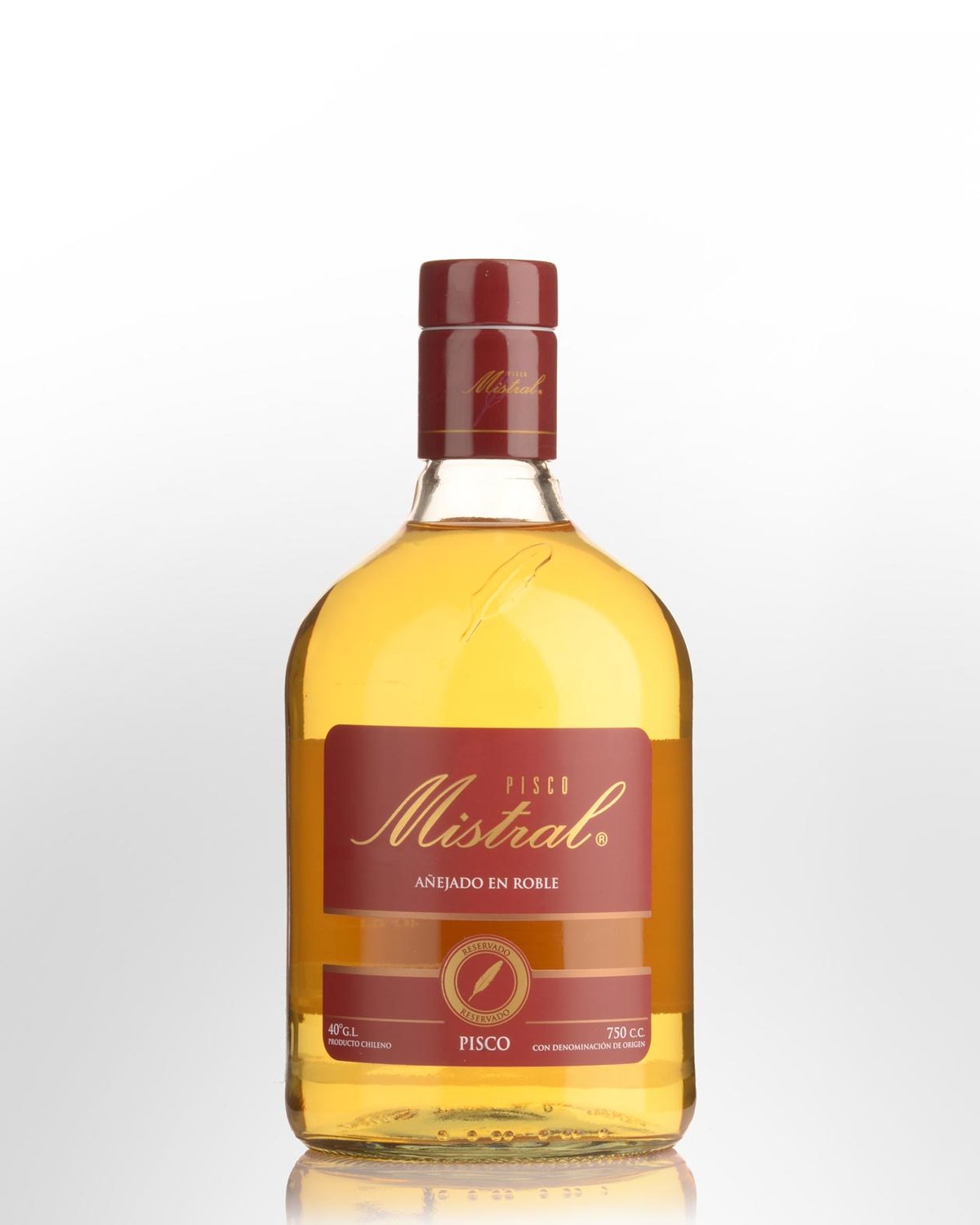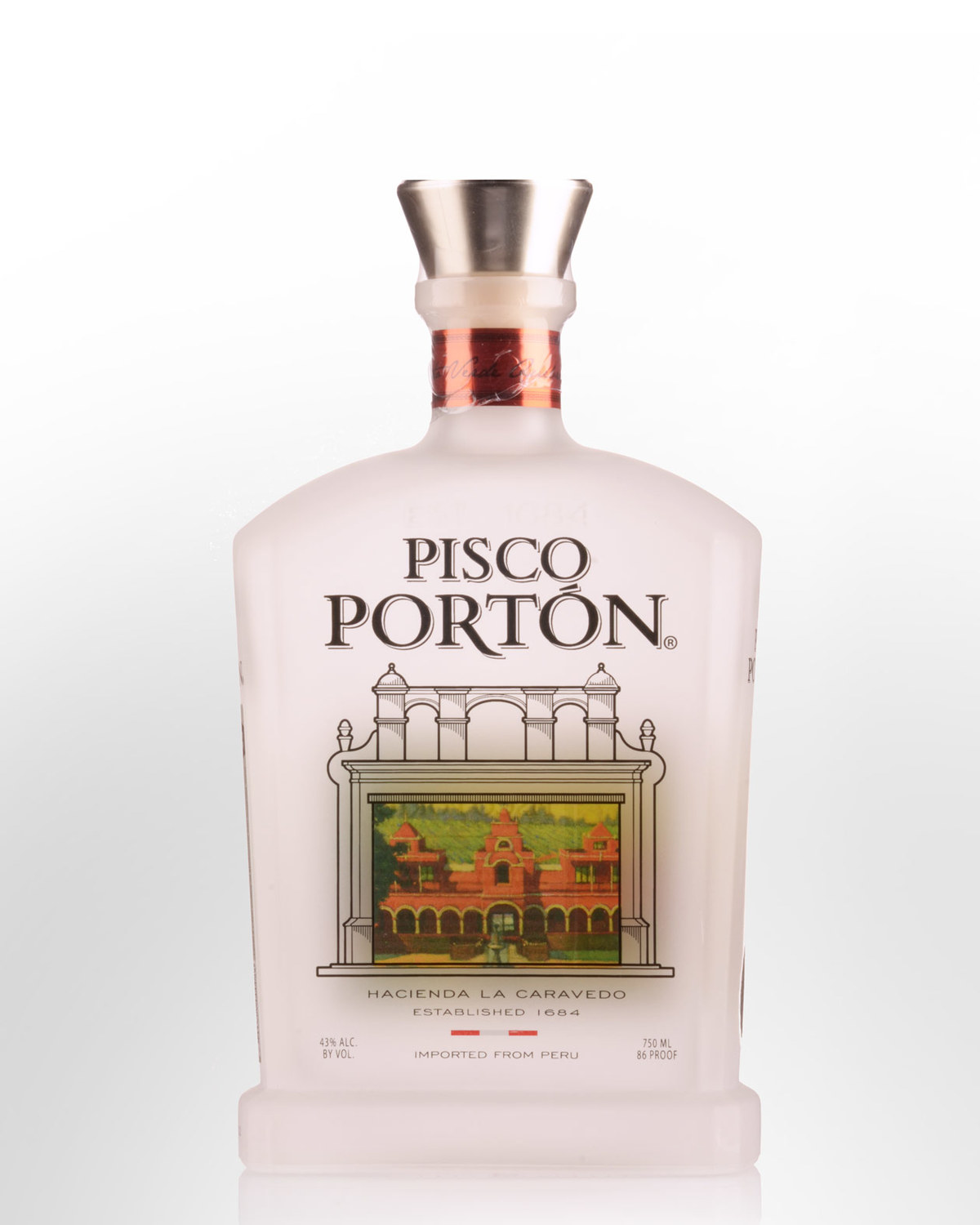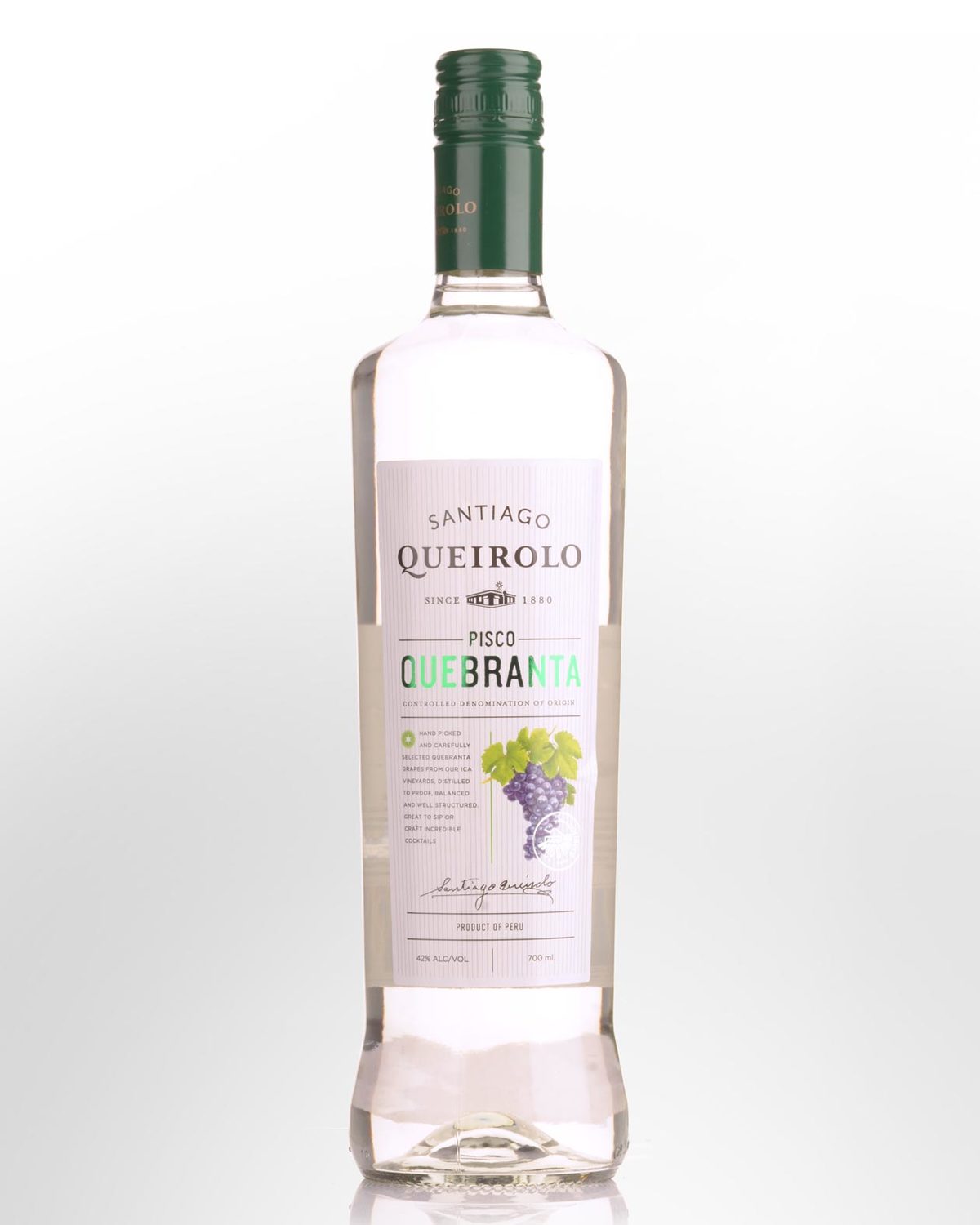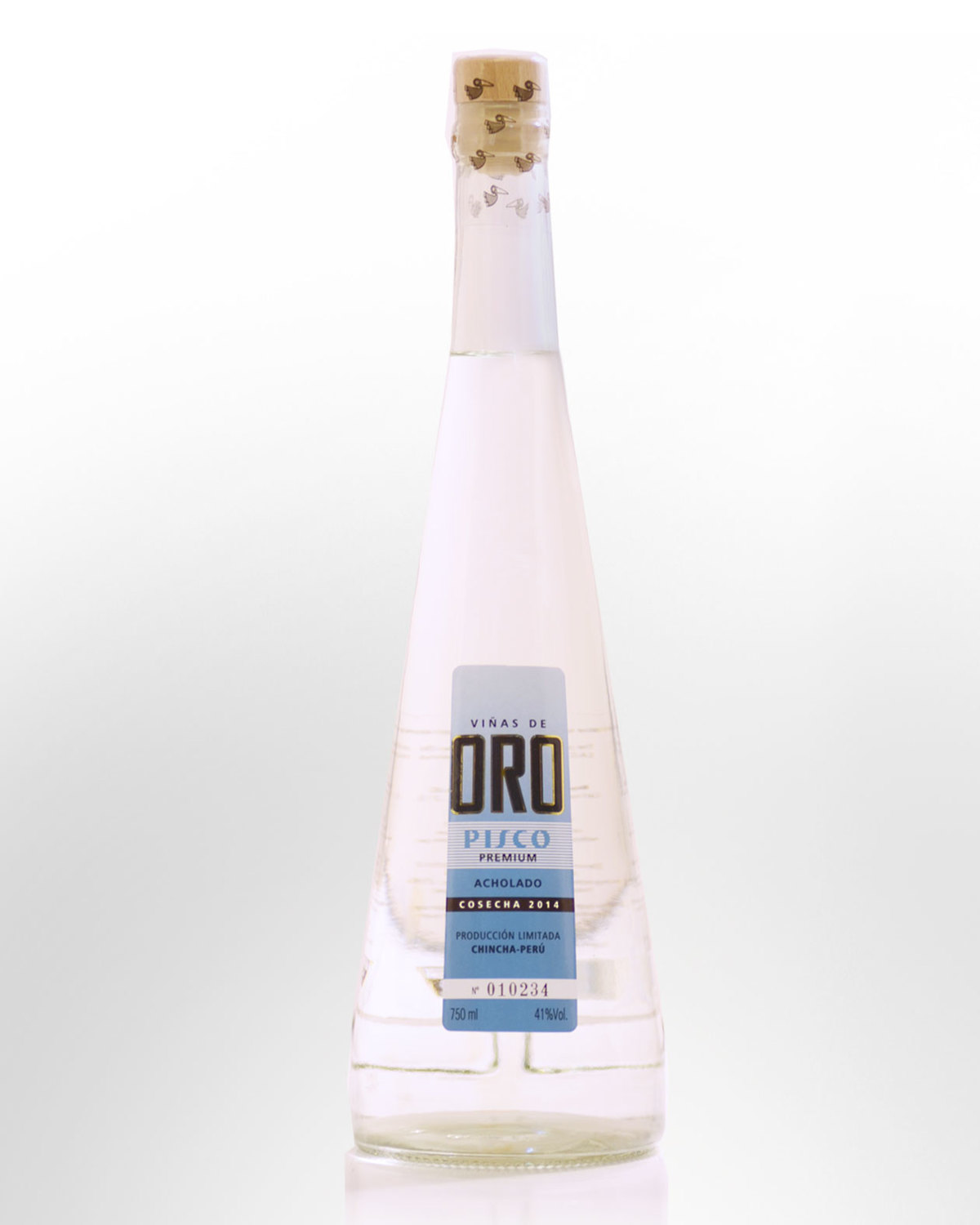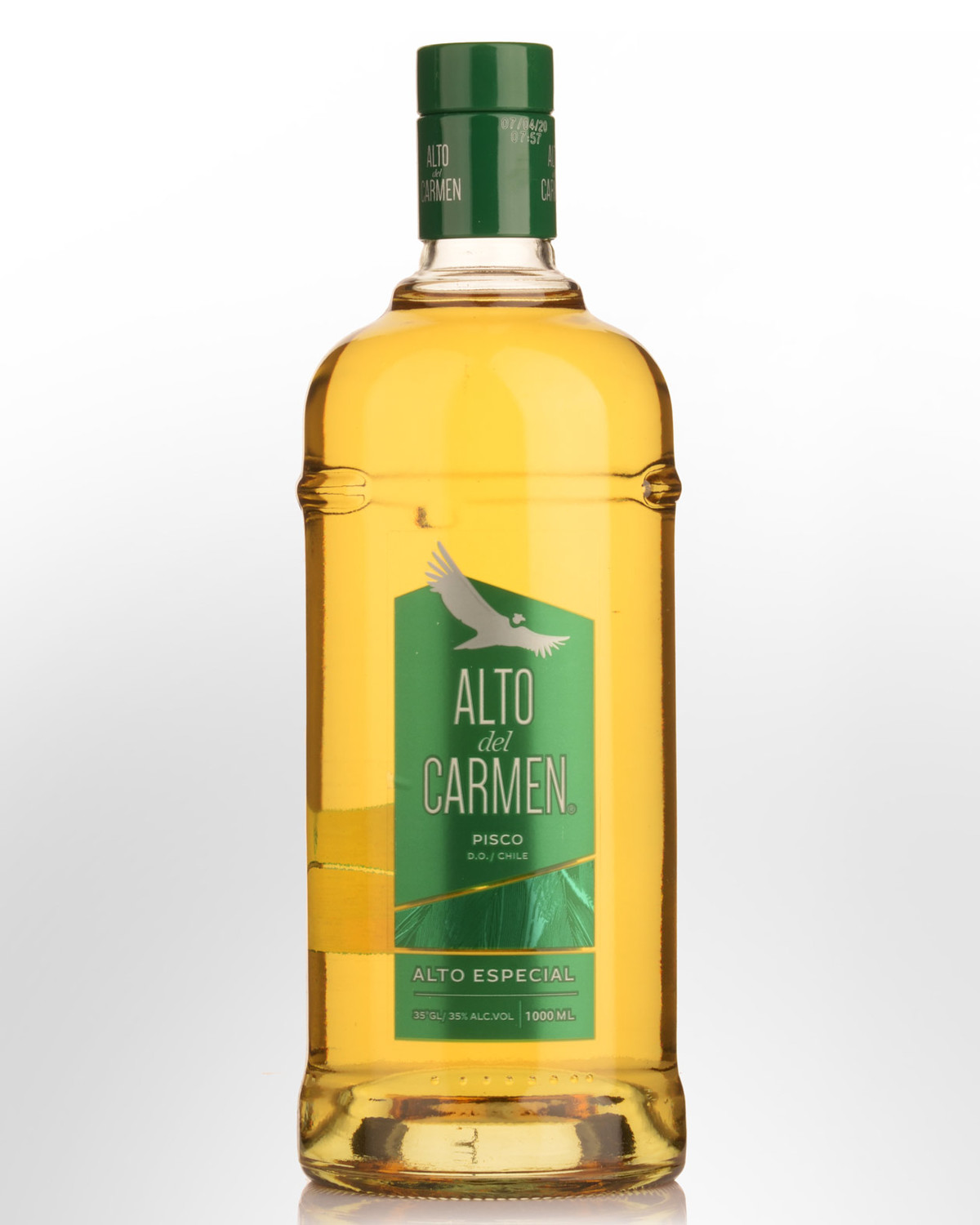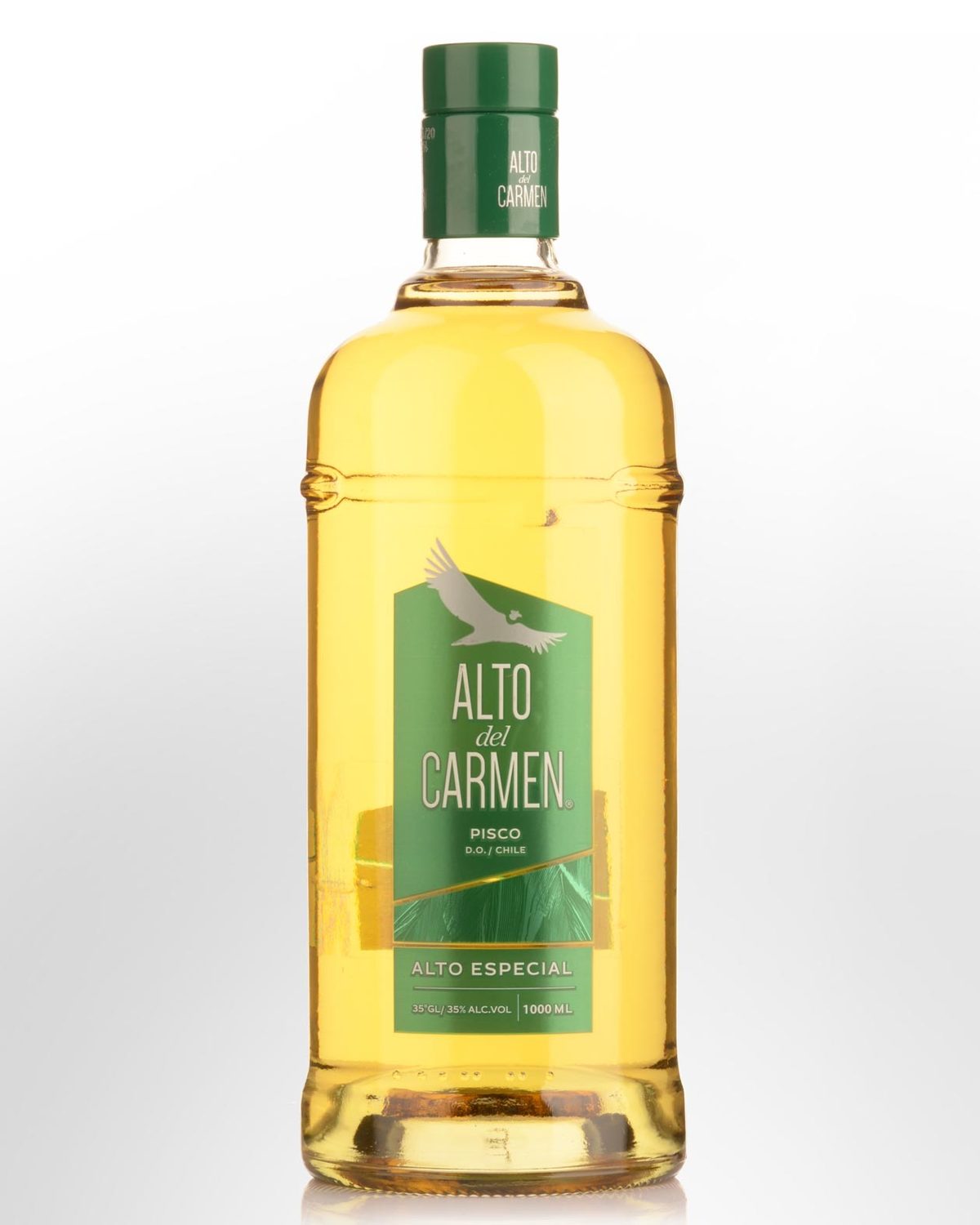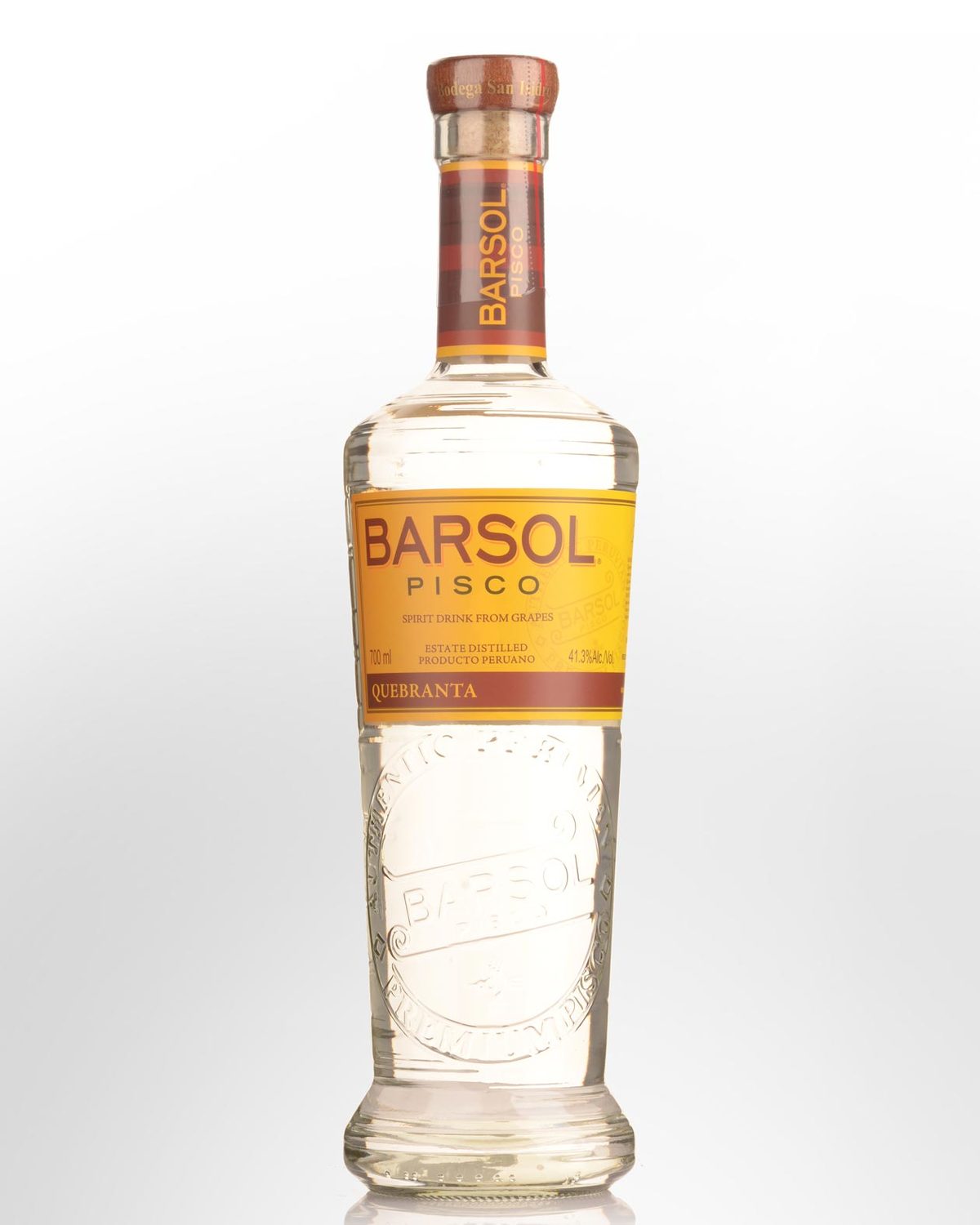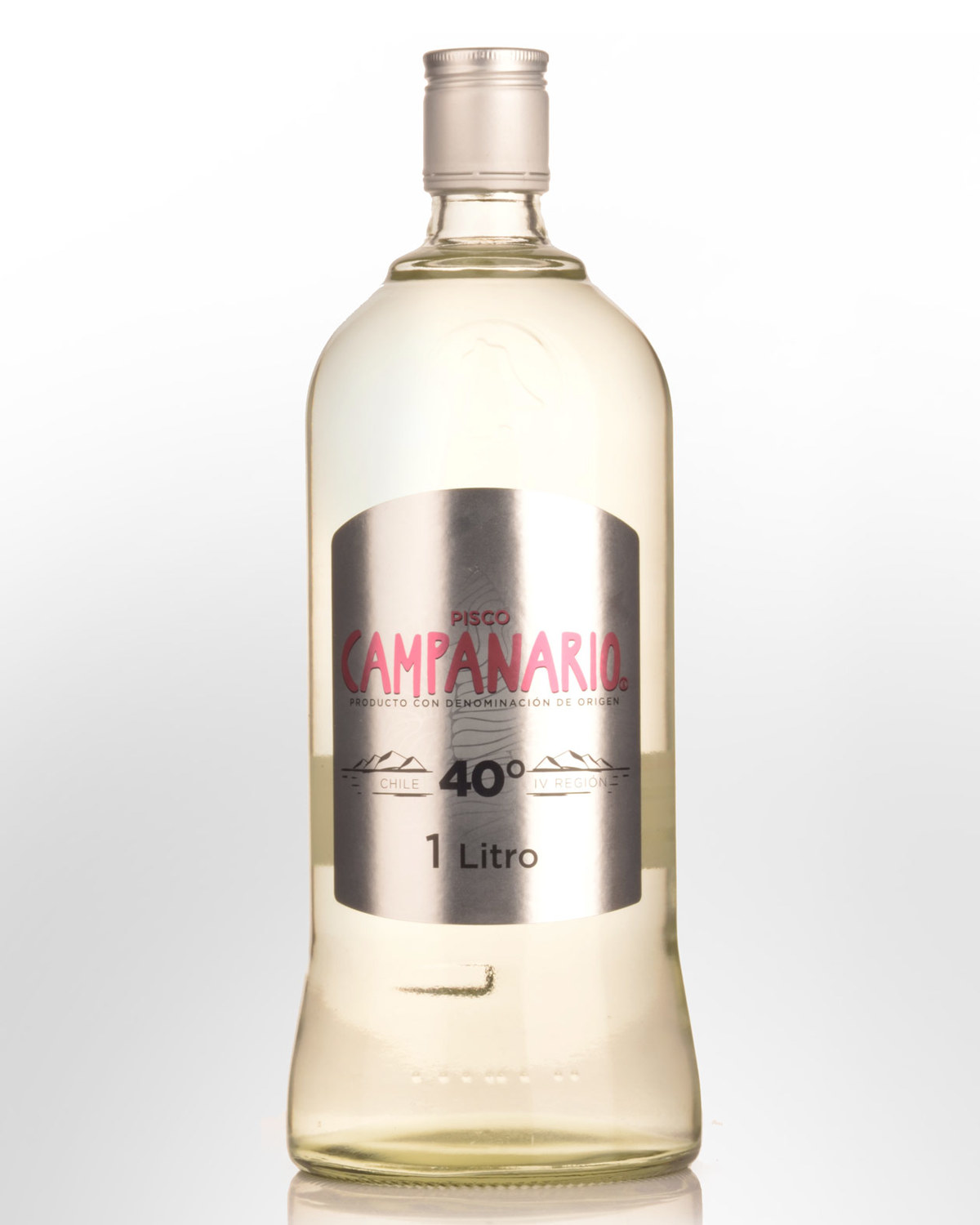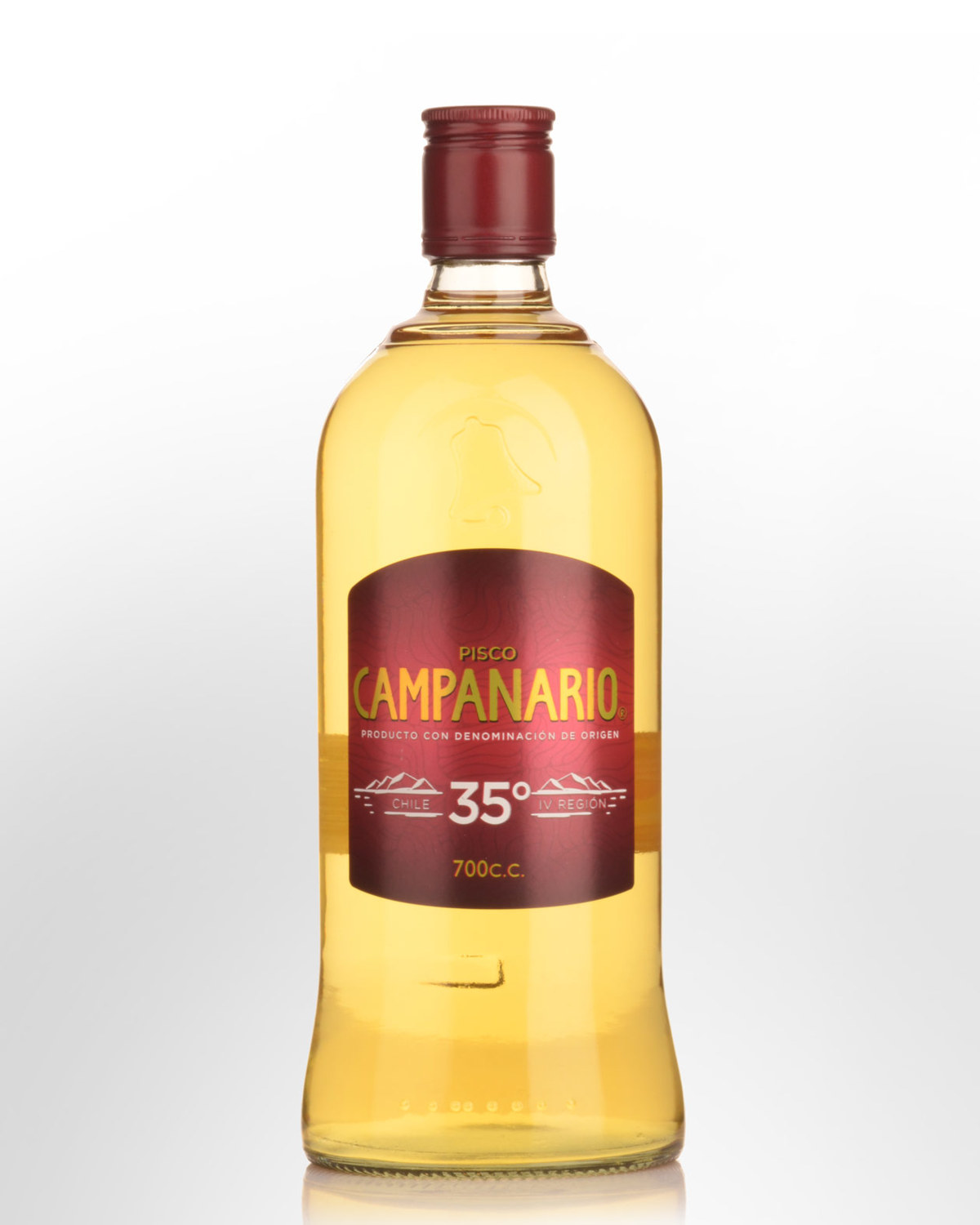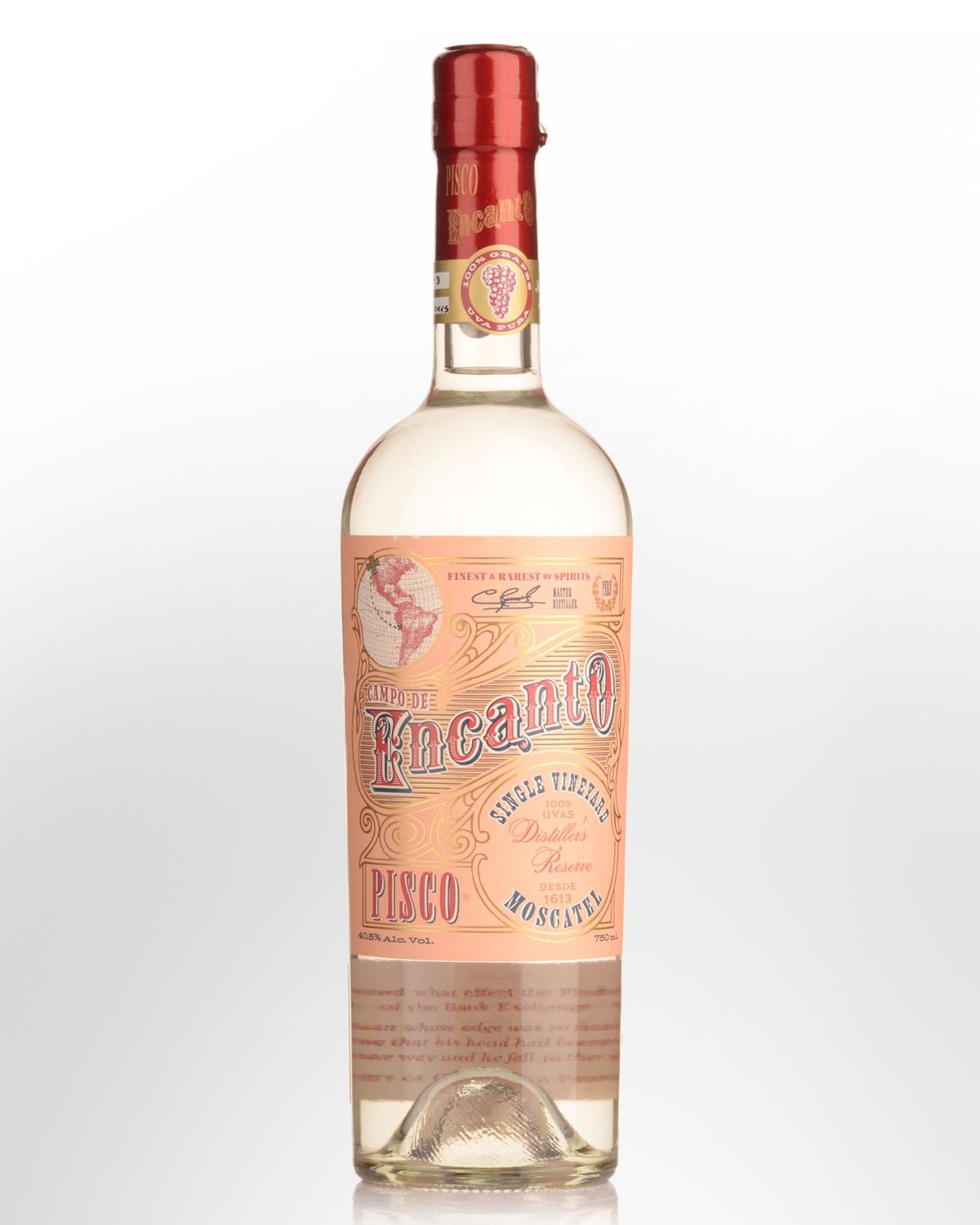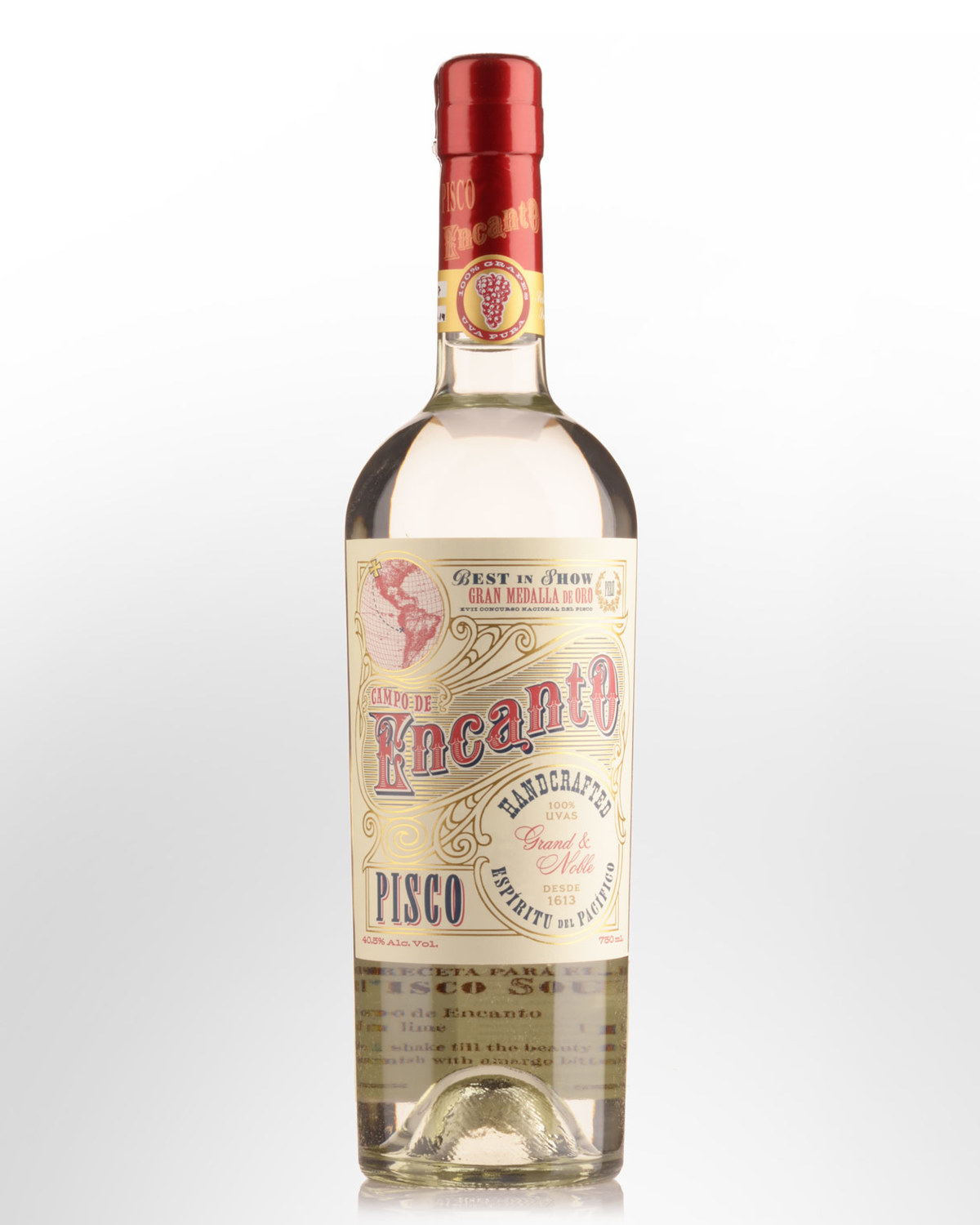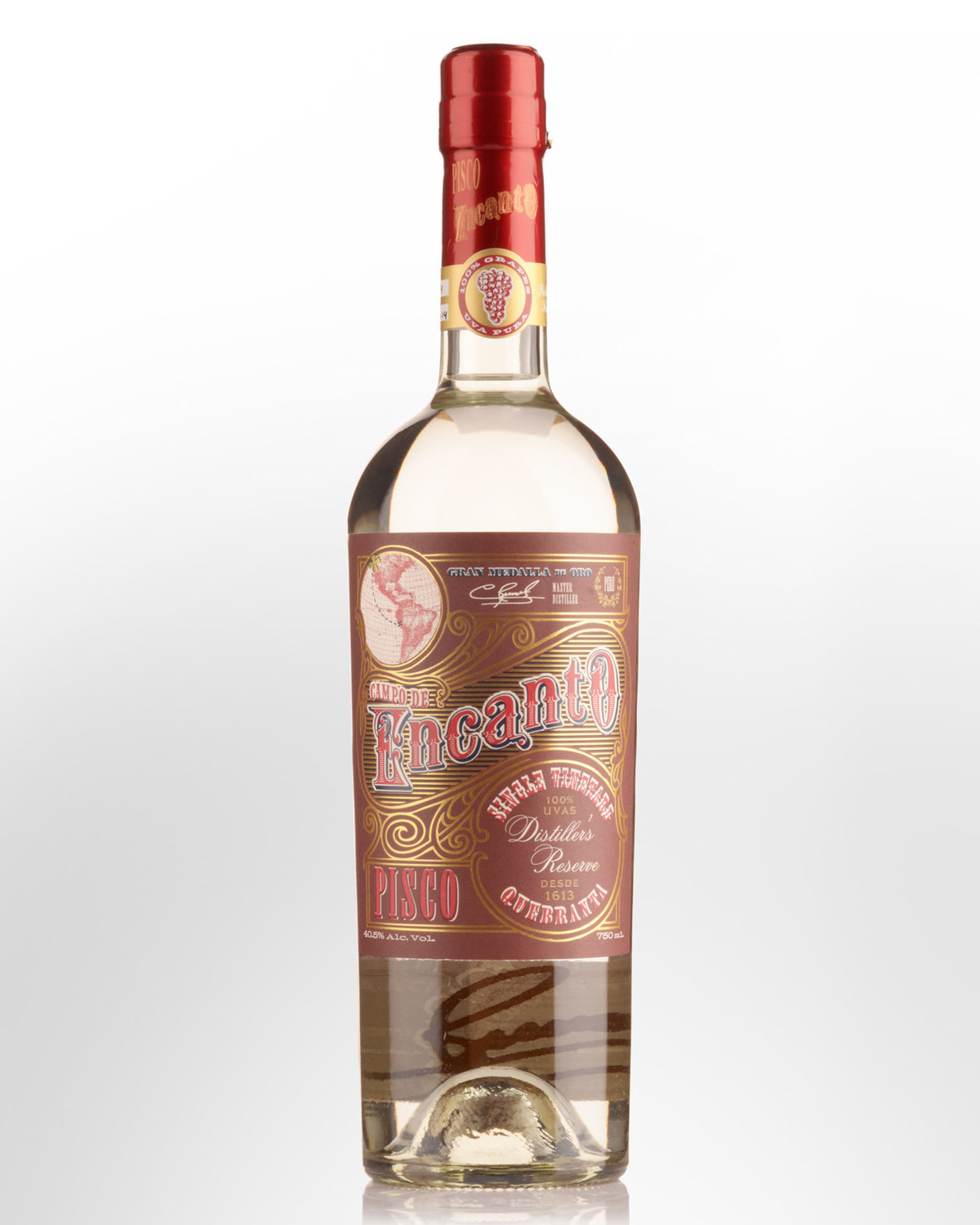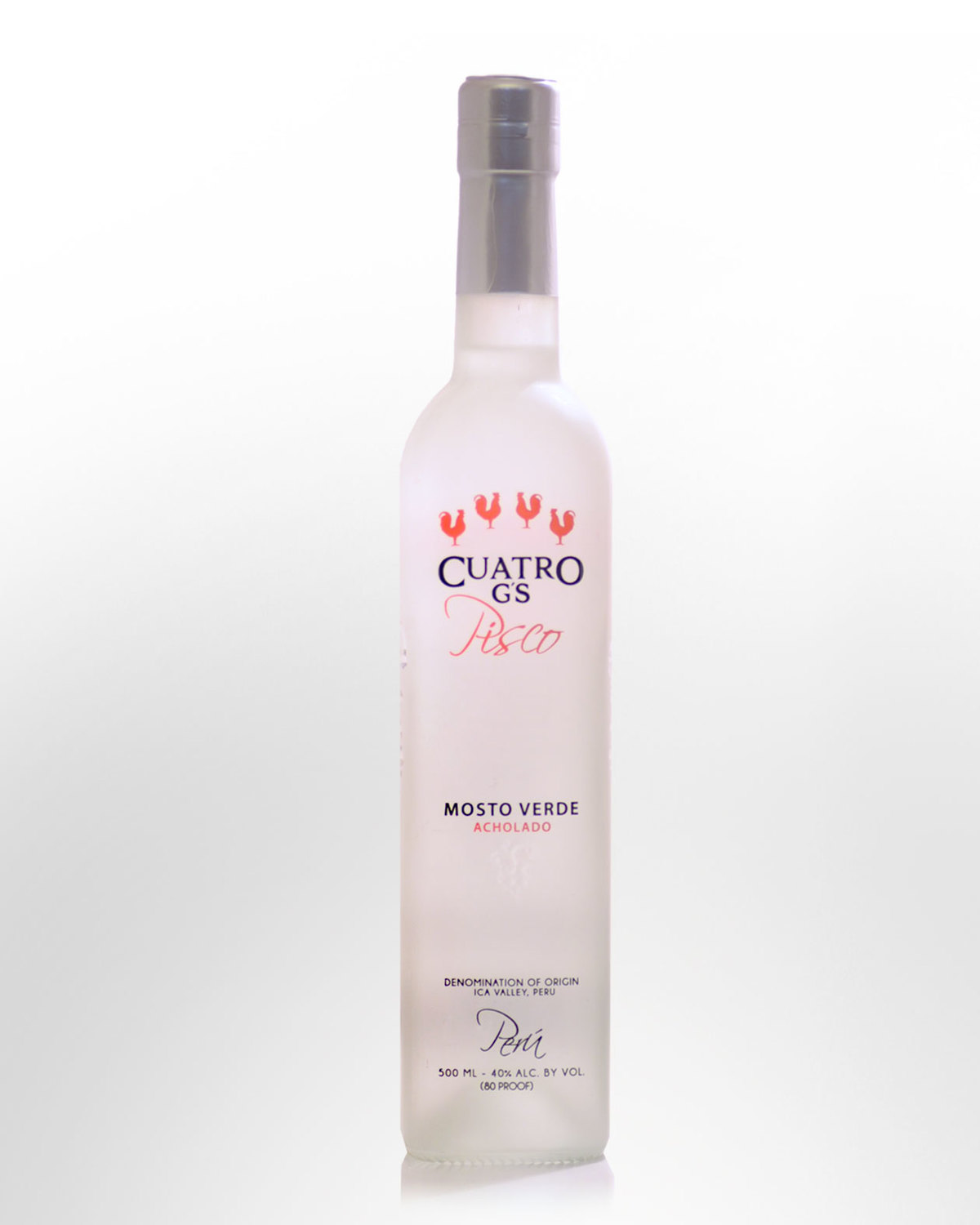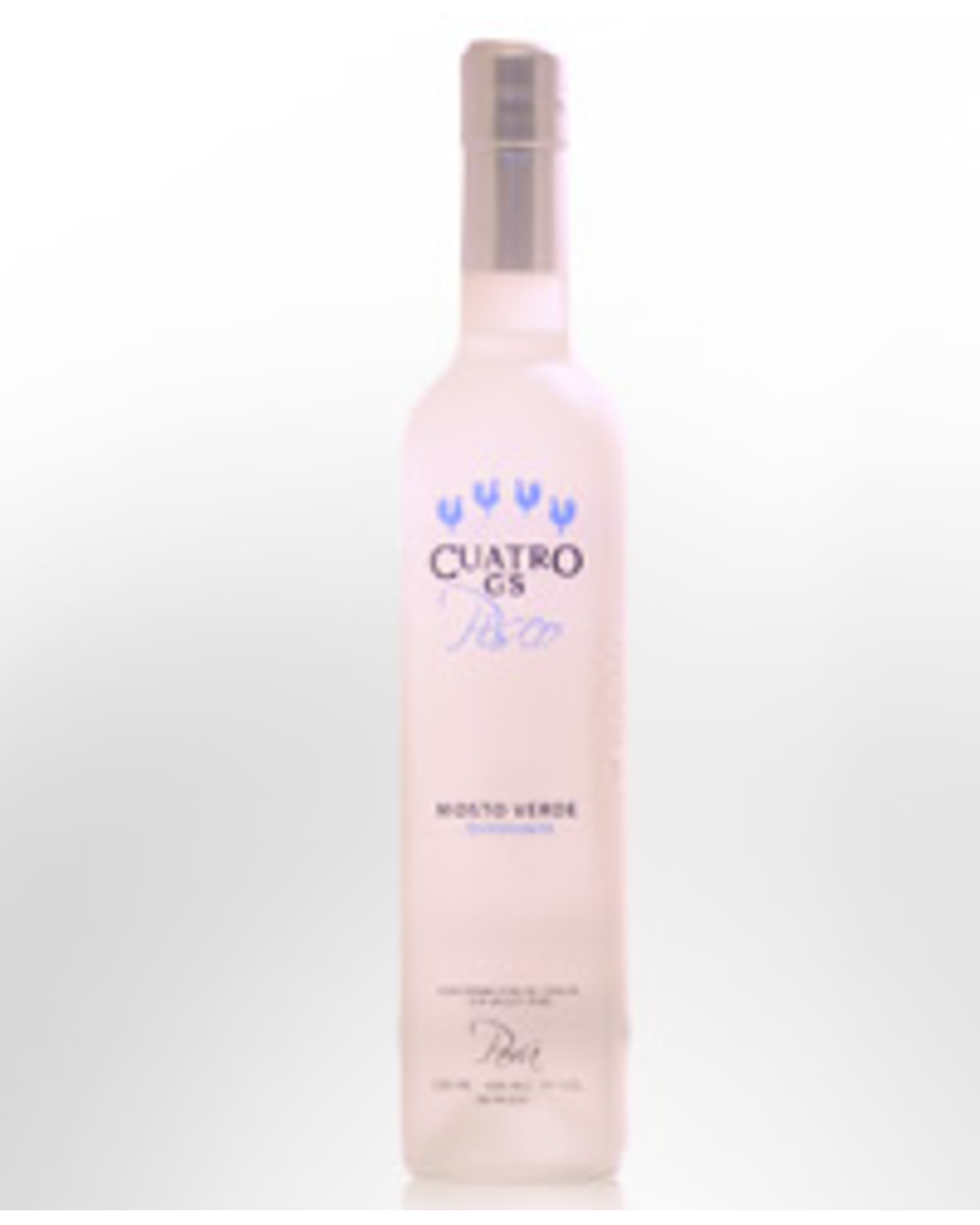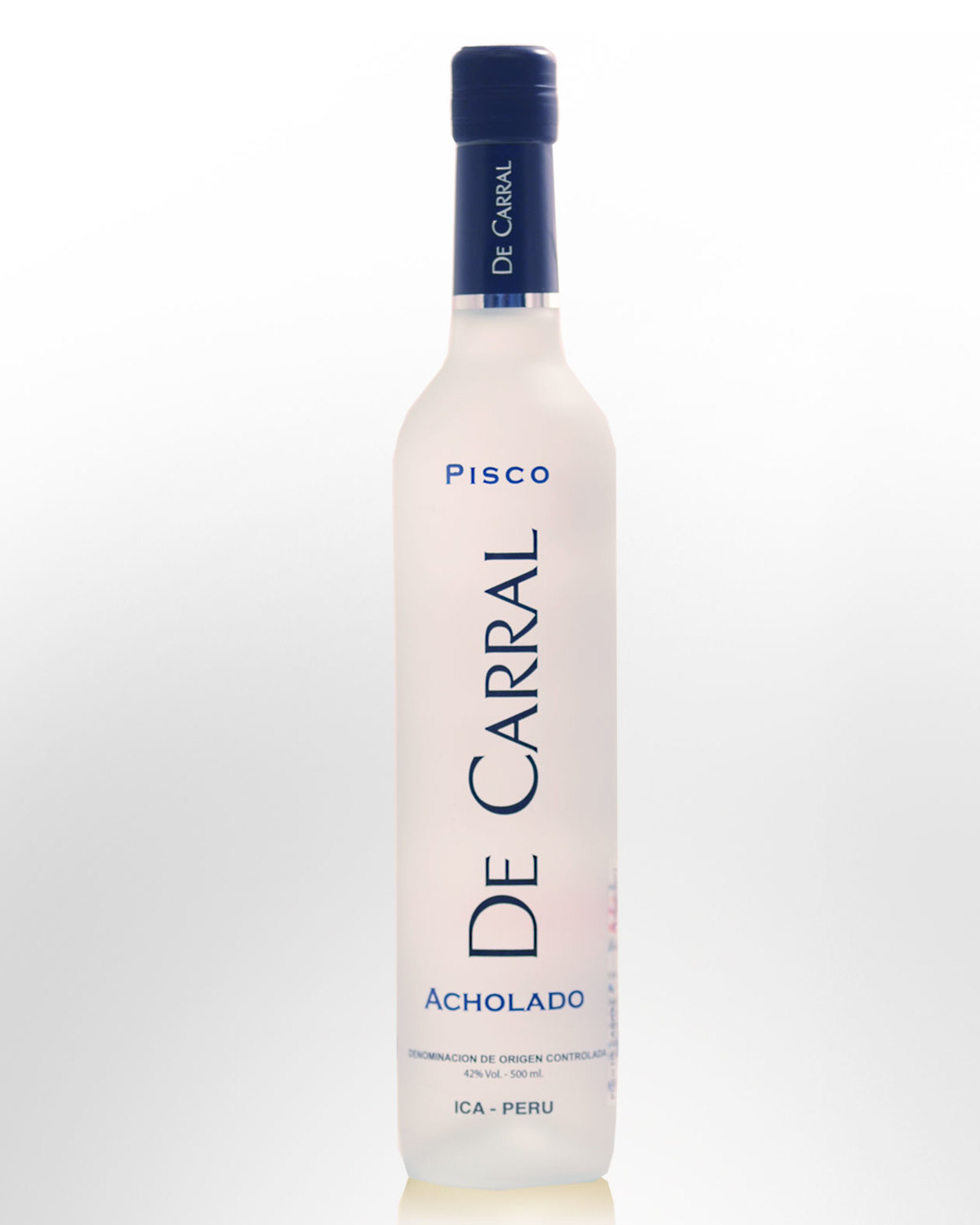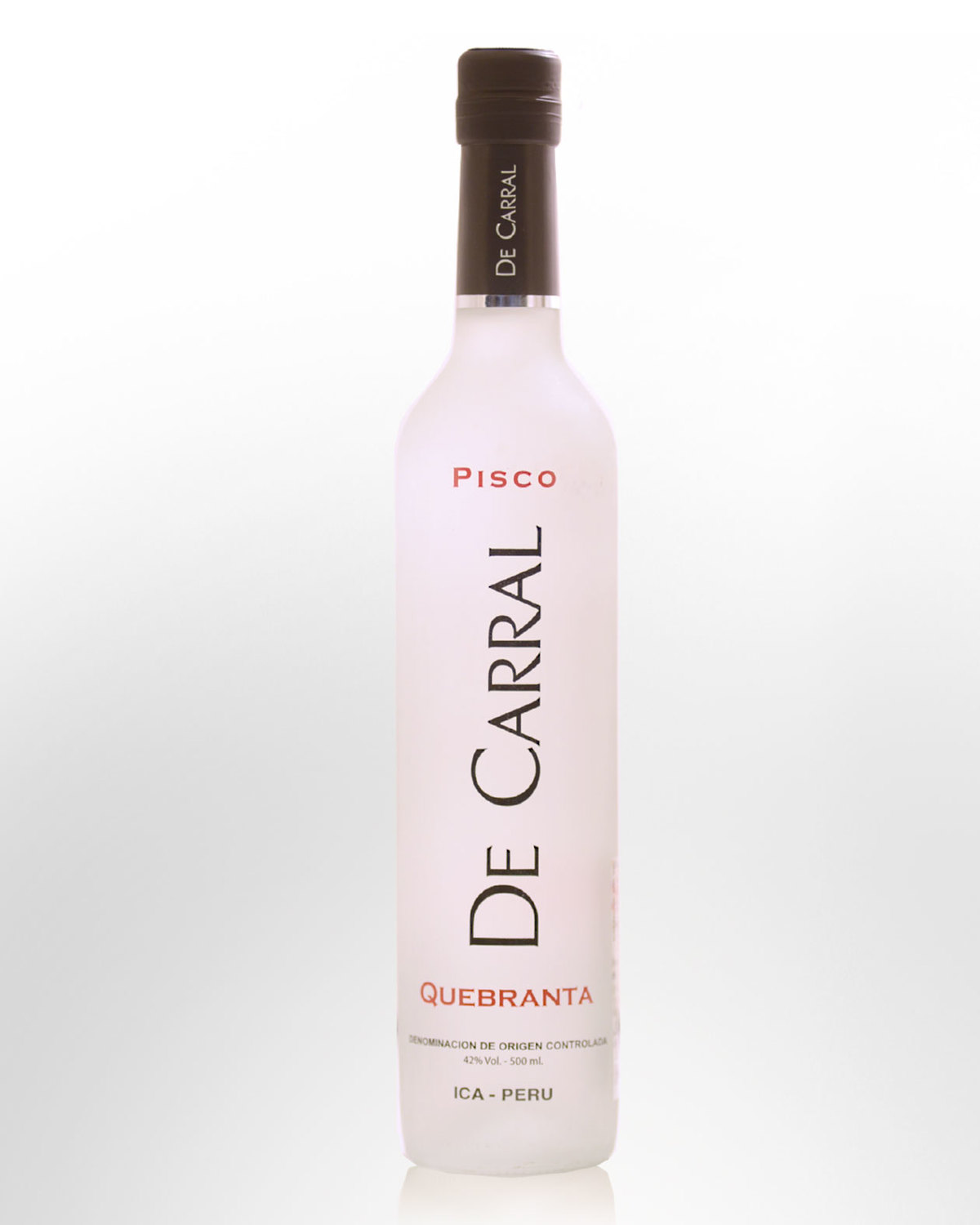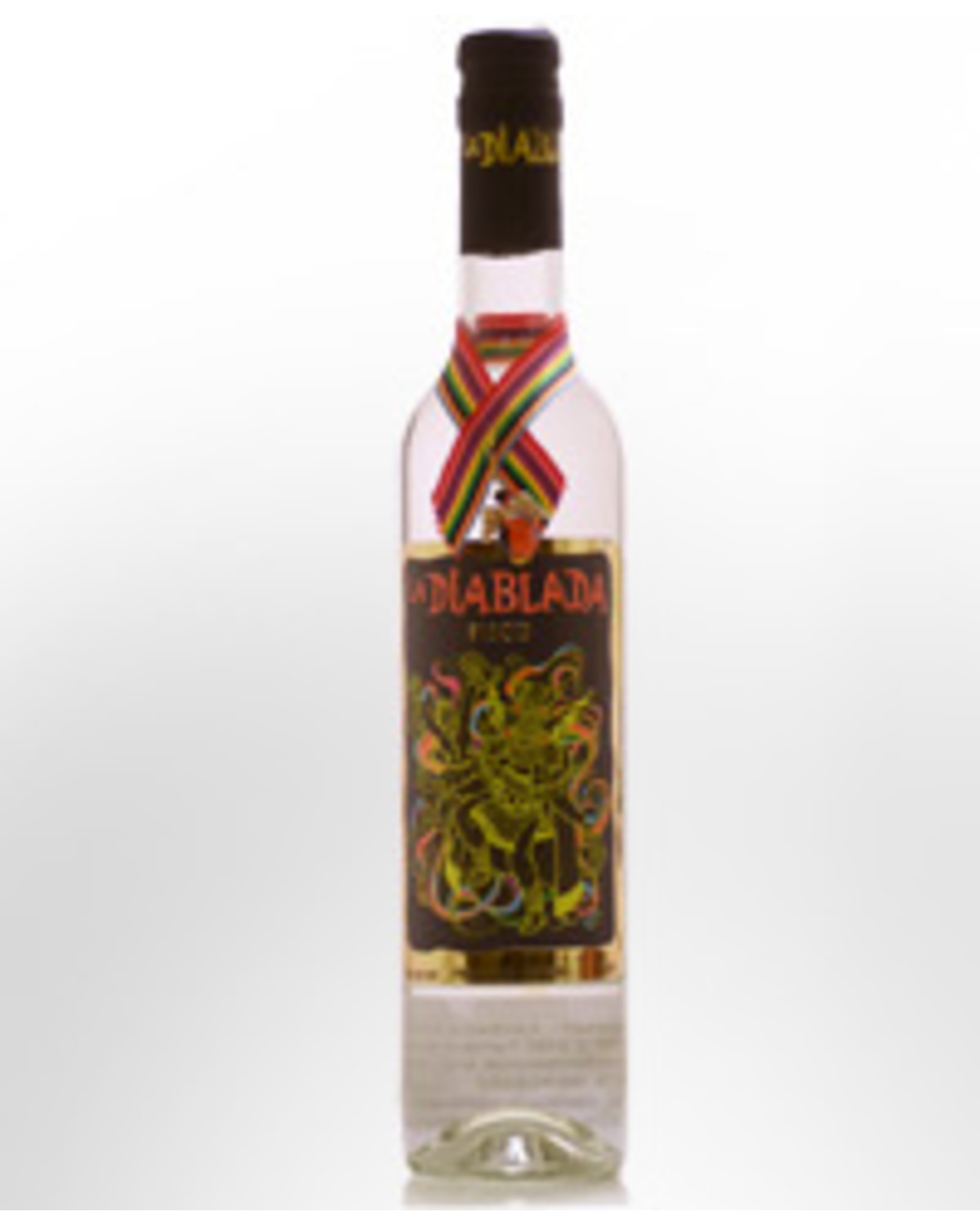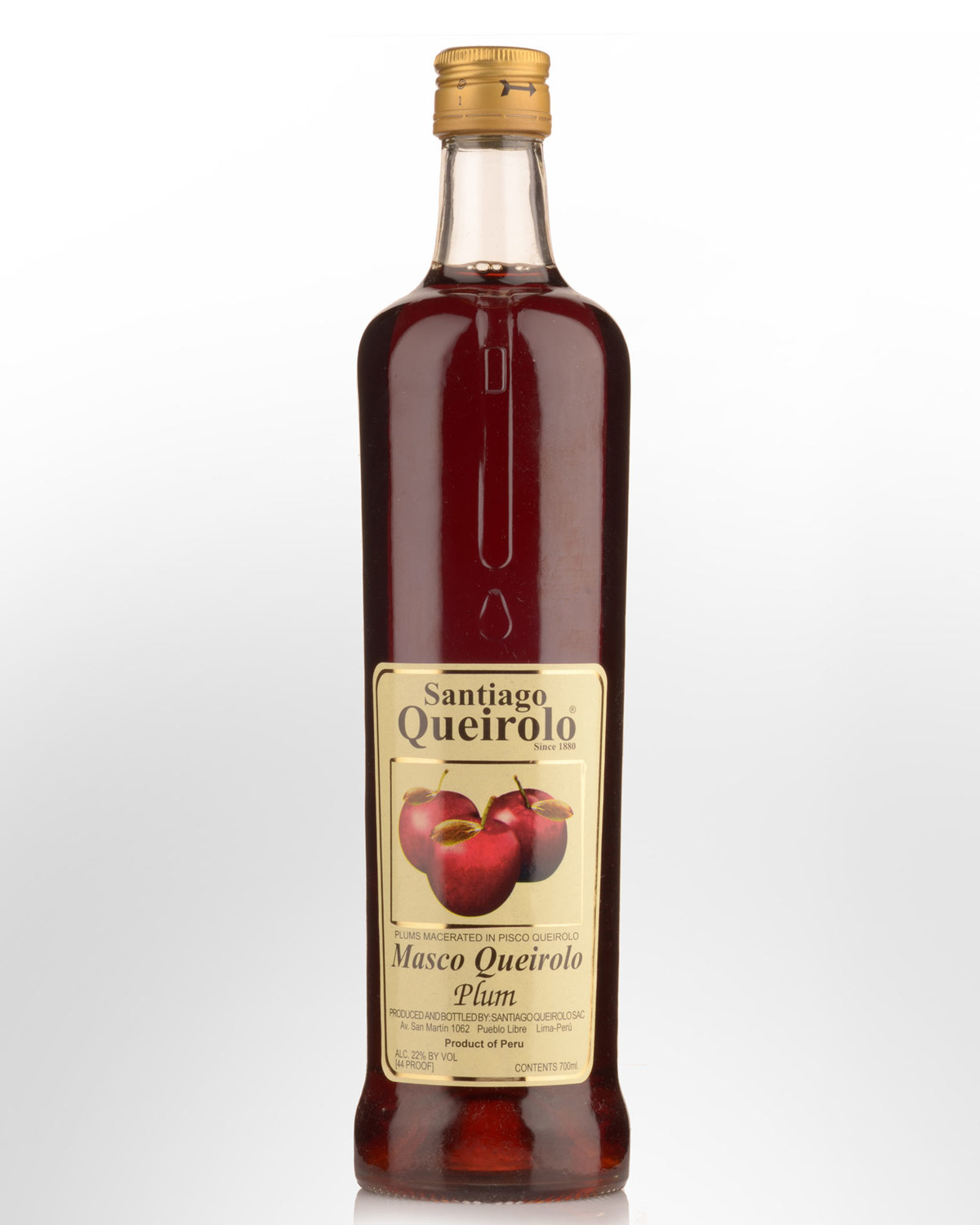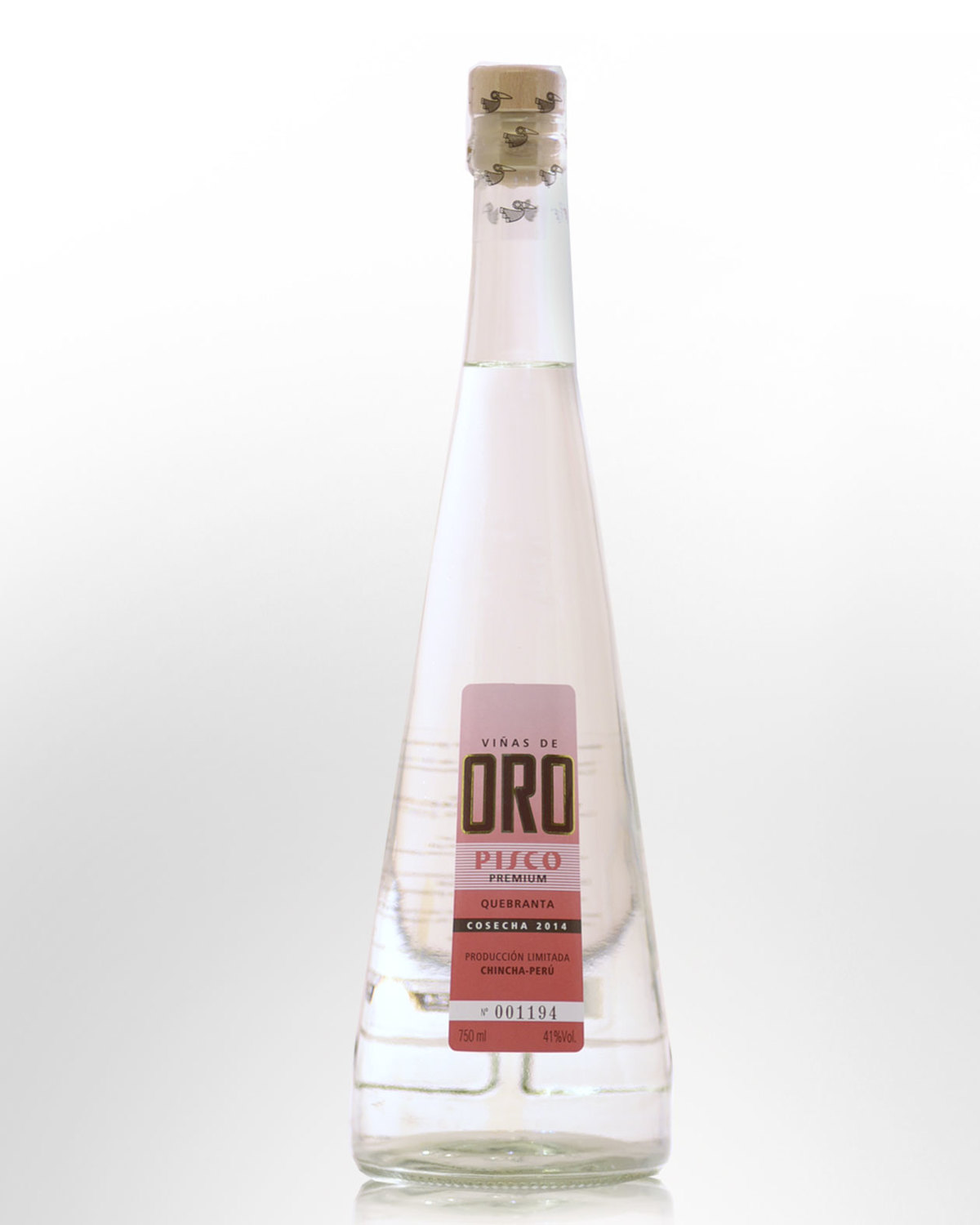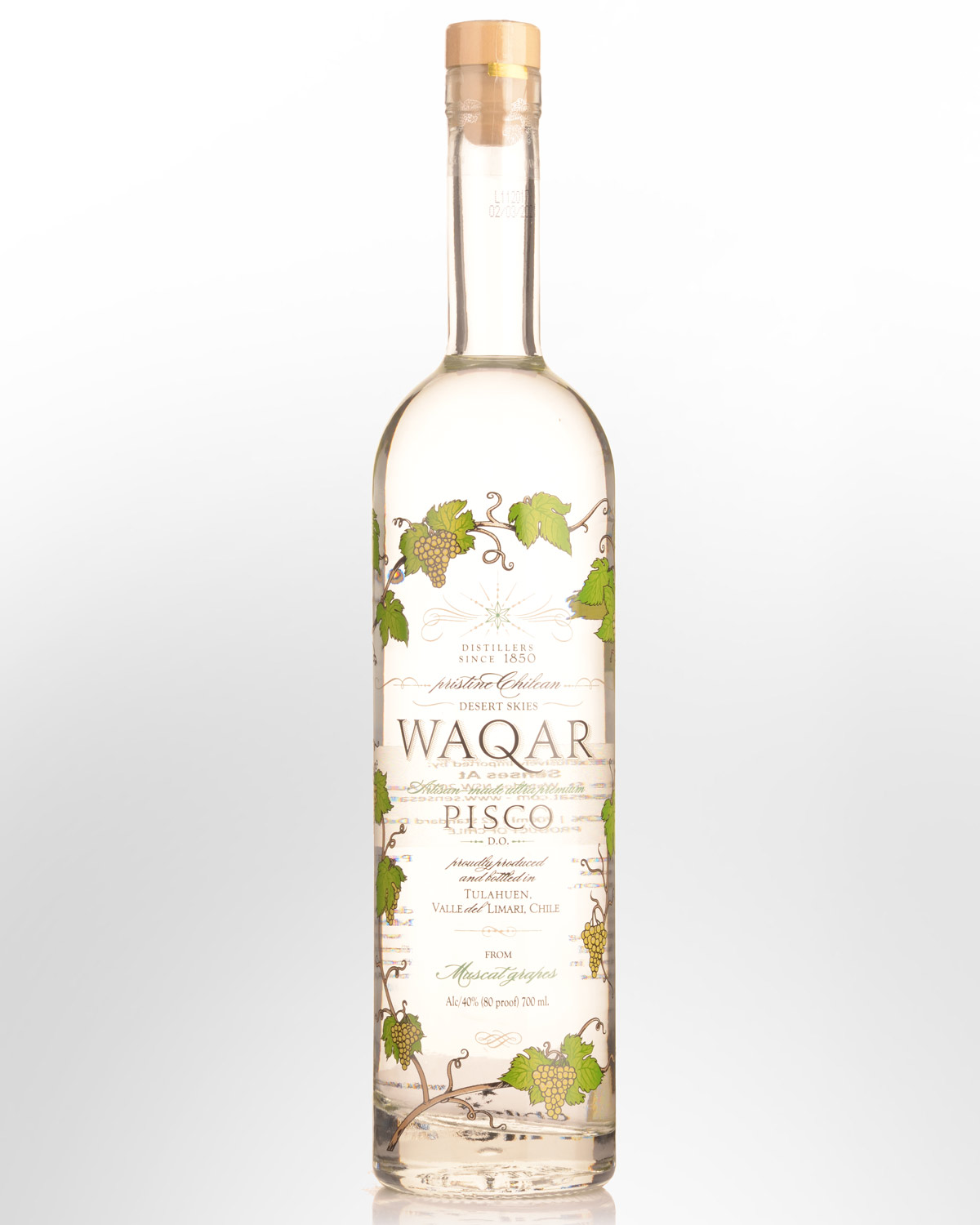Availability:
Pisco
- Alto del Carmen 40 Reservado Transparente Pisco (750ml)CHILE$69. 99Bottle$839.88 DozenABV: 40%
Alto del Carmen is produced just outside of Vicuna in the beautiful Elqui Valley. This example is made from hand harvested muscat grapes, distilled in copper pot stills and classified by Chile as a "reservado". A three time cold-filtering creates a clear spirit - hence the title 'Transparente', as opposed to its gold coloured sibling. Expect an easy-drinking, lightly fruity Pisco that's endlessly mixable. 40% Alc./Vol.
- Alto del Carmen 40 Reservado Pisco (750ml)La Serena, CHILE$69. 99Bottle$839.88 DozenABV: 40%Closure: Screw Cap
Chilean Pisco is a distillate mainly of grapes from the Moscatel family, which are grown primarily in the semi-arid "little North" zone of Chile. Chile claims Pisco as its own, protecting its quality through strict adherence to regulations which permit production and processing only in the administrative regions of Coquimbo and Atacama.
Alto del Carmen is produced just outside of Vicuna in the beautiful Elqui Valley. Tucked away in the high altitudes of the Andes, the wine-growing region is renowned for its Muscat grapes. This example is double distilled in small batches, predominantly from Muscat, however Pedro-Ximenez and Torontel grapes may also make the grade. Aged at least six months in American oak barrels, then triple filtered and bottled at 80 proof, expect fresh grape aromas and a satiny textured brandy that's also pleasantly warming. 40% Alc./Vol.
- Campanario Mango Pisco (700ml)CHILE$29. 99Bottle$359.88 DozenABV: 12%An alternative to the classic 'Pisco Sour', this tropical expression includes natural mango juice. At just 12% ABV it's more like a pre-mixed cocktail than a spirit.
- Campanario Pisco Sour (700ml)La Serena, CHILE$32. 99Bottle$395.88 DozenABV: 16%Campanario Especial Pisco forms the base for this cocktail mixer. Simply add a dash of egg white, shake over ice, pour neat and finish with a few drops of bitters over the egg white foam for a delicious, refreshing Pisco sour.
-
- 91
Cuatro G's Puro Quebranta Pisco (750ml)PERU$89. 99Bottle$1079.88 DozenABV: 40%In the 1990s, four brothers visited the Ica Valley in the southern central zone of Peru seeking land to grow products such as avocados, pecans and grapes. They came across a beautiful estate – Bodega Don Luis – located in the Juan Baustica district. This bodega, with the oldest Quebranta vines in valley, was noted for the outstanding quality of fruit they produced. Originally sold to other bodegas in the area, demand for the grapes grew to the point where the four brothers decided to reserve their own small production of pisco for family and close friends. The demand for their pisco grew. In 2002 the brothers founded Cuatro Gallos (Four Roosters) and increased their output. Their pisco has since been recognised nationally, obtaining the prestigious Gran Medalla de Oro in Concurso Nacional del Pisco in 2006. Tasting note: Clear. Engages with fragrant raisin / white pepper opening sniffs followed by suggestions of oxidised grape / pomace. Light to medium bodied; builds towards the finish with moist raisin cake richness and gentle spices. Hints of green olive and mustard seed add further interest. Super clean and delicate, bordering on floral. 40% Alc./Vol. -
- 88
Macchu Pisco (700ml)PERU$89. 99Bottle$1079.88 DozenABV: 40%Made from 'non-aromatic' Quebranta grapes using a copper pot still. Recommended as the perfect base for a Pisco Sour. Tasting note: Clear. Musty aromas include notes of raisin bread and candlewax. Light and soft in the mouth with a medium dry, juicy grapey, waxy profile and a delicate pepper, raisin bread fade. Endlessly mixable. 40% Alc./Vol. - Mistral Especial 35 Pisco (750ml)CHILE$64. 99Bottle$779.88 DozenABV: 35%A barrel aged expression from the Mistral distillery located in the Elqui Valley of Chile. The brand is named in honor of Gabriela Mistral, a Chilean recipient of the Nobel Prize for Literature. Distilled using Pedro Ximénez and Muscat of Alexandria grapes, the result is a soft, well rounded Pisco with delicate notes of oak, vanilla and chocolate. 35% Alc./Vol.
- Mistral Reservado 40 Pisco (750ml)La Serena, CHILE$74. 99Bottle$899.88 DozenABV: 40%Closure: Screw CapChilean Pisco is a distillate mainly of grapes from the Moscatel family, which are grown primarily in the semi-arid "little North" zone of Chile. Chile claims Pisco as its own, protecting its quality through strict adherence to regulations which permit production and processing only in the administrative regions of Coquimbo and Atacama.
This reservado is aged in American oak barrels giving the product an amber color and a soft wood flavour and aroma. The main grape varieties used are Pedro Ximénez and Muscat of Alexandria. Expect delicate notes of vanilla and chocolate. Enjoy on the rocks, with lemon or fruit juice or in your favourite cocktail. 40%Alc/Vol
-
- 93
Porton Mosto Verde Quebranta Pisco (750ml)PERU$119. 99Bottle$1439.88 DozenABV: 43%Nestled in the Ica Valley in the south of Peru, amidst the foothills of the Andes, lies the oldest distillery in the Americas – Hacienda La Caravedo – established in 1684. Here Pisco continues to be handcrafted using centuries old production methods. Now owned by an American family, the Kallops, the distillery employs Johnny Schuler, Peru’s most celebrated authority on pisco who's both the ambassador and master distiller. Their product remains the country's No.1 Pisco export. Portón uses only the mosto verde method of distilling from partially fermented grape juice known as 'green must'. They let it rest for a full year in glass silos before it's bottled. Distilled to strength in copper pot stills from a blend of three grape varieties (Quebranta, Torontel and Albilla), this is unaged and unaltered, nothing (not even water) is added to the finished product. Most other spirit makers distill to high alcohol levels and then add water to dilute to a desired proof. Tasting note:Ideal clarity. Impressive bouquet highlights scents of crunchie bar and beeswax. Second pass drops a notch in sweetness offering more subdued ripe grape / unripe apricot-like notes. Very pleasurable. Creamy mouthfeel with initial vibrant pepper and fruit bread flavours. Slightly sweeter to finish with vanilla, honeycomb and beeswax to the fore. Excellent length. (One taster noted white chocolate.) Luxurious and highly textural. First rate. 43% Alc./Vol. Other reviews... 4.5 Stars - www.diffordsguide.com -
- 88
Santiago Queirolo Pure (Pura) Quebranta Grape Pisco (700ml)Ica Valley, PERU$82. 99Bottle$995.88 DozenABV: 42%Closure: Screw CapA spirit fermented and distilled from grapes, Pisco was initially developed by Spanish settlers in Peru around the sixteenth century as a cheaper alternative to their imported national spirit, ‘Orujo’ (a transparent spirit obtained from the distillation of the pomace of the grape, usually bottled at roughly 50% alc/vol). Pisco is produced in the wine making regions of both Chile and Peru; however, questions persist as to their points of difference. Generally speaking, Peruvian Pisco is considered to be superior. Its focus is on utilizing traditional methods to produce an artisanal product which pre-dates Pisco produced in Chile. Chilean Pisco, on the other hand, is the big corporate brother of the Peruvian, with an industry geared for high end production and export. In summary, although both styles are essentially forms of grape spirit, the end product is markedly different.
Defining Peruvian Pisco are particular methods of production, provenance, establishment of vines, the use of specific varietals and storage techniques. In all, it involves a series of considerations more comparable to the production of a fine wine. The Ica Valley is one of Peru’s best Pisco producing regions. The desert conditions are ideal for varietals such as Quebranta, Common Black, Mollar, Italia, Muscat, Albilla and Torontel to thrive. Famous distilleries located in the Ica Valley include Tacama, and the featured Quierolo brand.
There are four traditional styles of Pisco produced:
1. Pura (Pure): Made from using only a single grape variety, these usually include non-aromatic varieties such as Quebranta or Common Black. Famous for producing the ideal Pisco Sour.
2. Aromatic: Made from Moscatel varietals, these include Muscat, Torontel and Italia.
3. Mosto Verde (Green Must): Distilled from partially fermented must, this must be distilled before the fermentation process has completely transformed the sugars into alcohol.
4. Acholado: Blended from the must of several grape varietals.
Prior to distillation, the wine is placed into large containers known as ‘botijas’, (also known as pisqueras). These are made of clay, sand, manure and water, lined with a fibrous material such as straw to shape. These containers are placed outside whereby the heat of the sun acts as catalyst for fermentation. Oppose this to the Chilean styles which are matured in oak, producing a toastier spirit which is bottled at varying strengths according to the style. Peruvian Pisco must be bottled at the natural strength off the still.
Tasting note: Clear, brilliant, slightly viscous appearance. Strong yeast, fruit bread and caper-like aromas. Entry is smooth, warming and mildly tingly with olive bread and fruity flavours (plum, grape) laced with white pepper. Good concentration and balance. Slightly waxy, oily texture. Finishes clean and dry with a delicate salty, green olive and spice aftertaste. 42% Alc./Vol.
Cocktail Recipe: The Classic Pisco Sour
-3 parts Pura Pisco
-1 part granulated sugar
-1 part lime juice
-1 part egg whiteShake vigorously with ice until frothy and strain into a small wine glass and Garnish with ground cinnamon.
-
- 94
Vinas de Oro Acholado Pisco (750ml)PERU$99. 99Bottle$1199.88 DozenABV: 41%Contemporary styled piscos are produced at Bodegas Viñas de Oro, located in the Ica Valley, 213 km south from Lima. Since opening in 1993, their dedication to quality has been recognised in their meticulous viticulture combined with traditional artisan small batch methods and high-tech distillery. The collection ranges from subtle notes of nuts and dark fruits found in the varietals like Quebranta and Negra Criolla, to the bolder and more fragrant floral characteristics of Italia. Bodegas Viñas de Oro has earned a Globalgap Certification, a confirmation that the winery supports social responsibility and produces the highest quality pisco that meets all required the strict guidelines of the Peruvian Pisco Denomination of Origin. Tasting note: Produced from a blend of Quebranta, Italia and Torontel. Flawless clarity. Fresh and floral with lifted apple and pear juice-like perfume. Hints of musk? Later passes add a dried apricot aspect plus light citrus: Pink grapefruit? Lemon butter? Semi sweet and silky with lemon cough lozenge and orange cake flavours. Finishes with a burst of tangy, cleansing acidity rounding off with excellent length. Wonderful fruit purity and freshness. Very impressive. 40% Alc./Vol. - Alto del Carmen 35 Alto Especial Pisco (1000ml)CHILE$79. 99Bottle$959.88 DozenABV: 35%Chilean Pisco is a distillate mainly of grapes from the Moscatel family, which are grown primarily in the semi-arid "little North" zone of Chile. Chile claims Pisco as its own, protecting its quality through strict adherence to regulations which permit production and processing only in the administrative regions of Coquimbo and Atacama.
Alto del Carmen is produced just outside of Vicuna in the beautiful Elqui Valley. This example is made from hand harvested muscat grapes, distilled in copper pot stills then rested in American oak barrels. Expect an easy-drinking, lightly fruity Pisco that's endlessly mixable. 35% Alc./Vol.
- Alto del Carmen 35 Alto Especial Pisco (750ml)CHILE$61. 99Bottle$743.88 DozenABV: 35%Chilean Pisco is a distillate mainly of grapes from the Moscatel family, which are grown primarily in the semi-arid "little North" zone of Chile. Chile claims Pisco as its own, protecting its quality through strict adherence to regulations which permit production and processing only in the administrative regions of Coquimbo and Atacama.
Alto del Carmen is produced just outside of Vicuna in the beautiful Elqui Valley. This example is made from hand harvested muscat grapes, distilled in copper pot stills then rested in American oak barrels. Expect an easy-drinking, lightly fruity Pisco that's endlessly mixable. 35% Alc./Vol.
- Barsol Quebranta Pisco (700ml)PERU$79. 99Bottle$959.88 DozenABV: 41.3%Pot distilled in small batches and bottled at one of the oldest distilleries in Peru's Ica valley, BarSol is produced from the first pressing of Quebranta gapes. Other reviews... The resiny aroma leads into intense, overpowering straw and hay notes on the tongue, softened by overripe tropical fruit on the finish. 85 points - www.wineenthusiast.com
- Campanario 40 Pisco (1000ml)CHILE$74. 99Bottle$899.88 DozenABV: 40%Pisco is an oak matured grape spirit, which up until maturation is similar to brandy. Pisco is usually matured for short periods, similar to Tequila which reduces the need for stringent oak selection. A wide selection of grape varieties can create the wine prior to distilling. These can include - but are not limited to Muscat, Frontignac, Pedro Ximénez and Torontel. Each producer has their own specific blend, which may vary slightly from vintage to vintage. The basis of the very simple, classic cocktail, the 'Pisco Sour', Pisco is also happily served chilled in a tall glass over ice, or mixed with cola, tonic, soda or cider. The perfect choice for warm summer evenings. 40% Alc./Vol.
- Campanario 35 Pisco (700ml)La Serena, CHILE$49. 99Bottle$599.88 DozenABV: 35%Pisco is an oak matured grape spirit, which up until maturation is similar to brandy. Pisco is usually matured for short periods, similar to Tequila which reduces the need for stringent oak selection. A wide selection of grape varieties can create the wine prior to distilling. These can include - but are not limited to Muscat, Frontignac, Pedro Ximénez and Torontel. Each producer has their own specific blend, which may vary slightly from vintage to vintage. The basis of the very simple, classic cocktail, the 'Pisco Sour', Pisco is also happily served chilled in a tall glass over ice, or mixed with cola, tonic, soda or cider. The perfect choice for warm summer evenings. 35% Alc./Vol.
- Campo de Encanto Distiller's Reserve Single Vineyard Moscatel Pisco (700ml)PERU$89. 99Bottle$1079.88 DozenABV: 40.5%A highly aromatic expression produced from Moscatel grapes. Other reviews... This single vineyard pisco is made with grapes from famed Pampa de Villacuri Vineyard. It opens with delicate rosewater and white flower aromatics. The floral notes echo boldly on the palate, easing into a brush of tropical fruit and finishing with a floral exhale. 89 points - www.wineenthusiast.com
-
- 91
Campo de Encanto Acholado Pisco (750ml)Ica Valley, PERU$79. 99Bottle$959.88 DozenABV: 42.5%The word amongst our bartender clients is that Campo de Encanto blows every other pisco out of the game. Paul Clarke from the Cocktail Chronicles agrees, describing it as "Mind blowing stuff, absolutely the best Pisco I've ever tasted."
Made by San Francisco bartenders specifically for craft cocktails, Campo de Encanto ‘Acholado’ Pisco is a cuvee of many different small batches, across vintages, and four different varietals: Quebranta (74%), Torontel (6%), Moscatel (4%) and Italia (16%). Distilled once, the spirit is then rested for one year to refine its texture, aroma and spice notes. Produced according to the strictest standards set by the Comisión Nacional del Pisco of Perú, there are no preservatives, sugar or water added. The result is an honest, bottled-at-proof beauty.
In its inaugural year, Campo de Encanto won the Gran Medalla de Oro, the award for the Best Pisco of Perú. For Maestro Carlos Ruben Romero-Gamero and the nearly four hundred distillers in Perú, this is the highest honor to receive. Every September, the Comisión Nacional del Pisco combs the vast landscape of Perú visiting Pisco distilleries to secure samples of the pure grape brandy for analysis. Regional competitions ensued, followed by the Grand Championship which was held on Friday, November 5th, 2010. In front of thousands of his countrymen thirsty for their native drink, Master Distiller Romero and the brand he co-founded, Campo de Encanto was awarded the year's World's Best Pisco.
Tasting note: Crystal clear showing only the palest yellow / green blush. A vibrant bouquet exudes talc and wet rock, followed by grapey/stemmy characteristics, bordering on floral. Aeration draws out sap and candle wax. Delicate entry leads into a concentrated, medium dry, vinous profile with a gorgeous, succulent, soft texture. Waxy, grapey flavours are counterpointed by gently warming spirit heat. Concludes gently spirity, off dry, and pleasantly musty with the stalk / grape theme persisting into the clean, dry aftertaste. 42.5% Alc./Vol.
-
- 87
Campo de Encanto Distiller's Reserve Single Vineyard Quebranta Pisco (750ml)Ica Valley, PERU$84. 99Bottle$1019.88 DozenABV: 43.1%The word amongst our bartender clients is that Campo de Encanto blows every other pisco out of the game. Paul Clarke from the Cocktail Chronicles agrees, describing it as "Mind blowing stuff, absolutely the best Pisco I've ever tasted."
Campo de Encanto's 'Distiller's Reserve' is produced from sustainably farmed grapes of the Quebranta variety (also known as Palomino Negro, Pais or Mission). It was awarded a Gold metal at Peru's national Pisco festival in 2011.
In its inaugural year, Campo de Encanto won the Gran Medalla de Oro, the award for the Best Pisco of Perú. For Maestro Carlos Ruben Romero-Gamero and the nearly four hundred distillers in Perú, this is the highest honor to receive. Every September, the Comisión Nacional del Pisco combs the vast landscape of Perú visiting Pisco distilleries to secure samples of the pure grape brandy for analysis. Regional competitions ensued, followed by the Grand Championship which was held on Friday, November 5th, 2010. In front of thousands of his countrymen thirsty for their native drink, Master Distiller Romero and the brand he co-founded, Campo de Encanto was awarded the year's World's Best Pisco.
Tasting note: Completely clear appearance. The aroma reveals moderate grappa like scents of grape skins over hints of fresh crushed chile. The palate is almost nondescript for several seconds with the off dry, svelte like texture opening into a delicate, subdued and elegant mid palate offering resin and acidic grape flavours. Slightly waxy finish, the spirit is almost indiscernible. Concludes slightly sweet and a little short. 43.1% Alc./Vol.
-
- 93
Cuatro G's Mosto Verde Acholado Pisco (750ml)PERU$99. 99Bottle$1199.88 DozenABV: 40%From the award winning team at Cuatro G. "Acholado" refers to a style made by blending two or more grape varieties. Tasting note: Clear. Captivates with exotic scents reminiscent of fiejoa, lemon gelato and ripe lychee in later passes. Follows through to a medium bodied, moderately waxy feijoa / lychee and pepper profile; Solid length. Concludes with a delicate raisin fruit-bread, dried grass and green olive aftertaste. Distinctive and delicious. The aroma is a delight. 40% Alc./Vol. -
- 91
Cuatro G's Mosto Verde Quebranta Pisco (750ml)PERU$99. 99Bottle$1199.88 DozenABV: 40%Mosto Verde (Green Must), refers to piscos distilled from partially fermented young wines. On average 5 to7 kilos of grapes are required to produce one litre of pisco, however, the Moste Verde process requires between 8 to 10 kilos of grapes per litre of pisco. (In comparison, four bottles of wine can be made from the same amount of grapes). Hence, this style is expensive to make. Tasting note: Interesting bready / grapey aromas combine with fruity pear cider / oxidised apple-like scents in later passes. Further time in the glass finds mild wax and paraffin as the fruity aspect is muted. Oily, light to medium bodied with nicely balanced, semi-sweet fruit bread and white pepper flavours. Medium long. Better than average. 40% Alc./Vol. -
- 87
De Carral Acholado Pisco (500ml)PERU$79. 99Bottle$959.88 DozenABV: 42%Bodega Villa Natalia is located in La Capilla on the left bank of the Ica river. Its history dates back to early twentieth century, when Señora Nicolasa was helping the family income by growing beans and grapes for sale in Lima. At that time she also started the family tradition of producing pisco for festivities and celebrations. Later, her daughter Natalia, whose name the Bodega has inherited, continued the tradition of making pisco for family and friends. After a pause of several years, the third and fourth generation of the Nicolasa family started producing pisco for commercial sale under the brand name De Carral. Currently Jose Chomon Salgado – a fourth generation family member - is the distiller at Villa Natalia. Jose is widely acclaimed for the quality of the pisco produced here and is in demand as one of Peru’s premium pisco judges. In keeping with four generations of family tradition, Villa Natalia use small batch artisan methods built on traditions from from past generations. Tasting note: Fresh and floral but understated, offering distant grape / pomace and beeswax notes. Mildly astringent with a creamy entry and a sprinkling of pepper. Fruit'n'nut chocolate flavours, rounding off dry and fleeting. Enchanting for its delicacy. 42% Alc./Vol. -
- 92
De Carral Quebranta Pisco (500ml)PERU$79. 99Bottle$959.88 DozenABV: 42%Tasting note: Crystal clear. Lots of appeal to the nose with bright, lifted notes of unripe apple followed by light beeswax and brine in later passes. Sour dough bread too? Super soft mouthfeel with vanilla underpinning sweet grape and fruit'n'nut chocolate flavours. Impressive length. Delicate wax and vanilla aftertaste. 42% Alc./Vol - Don Santiago Mosto Verde Italia Pisco (500ml)Ica Valley, PERU$69. 99Bottle$839.88 DozenABV: 40%Closure: Screw Cap
A spirit fermented and distilled from grapes, Pisco was initially developed by Spanish settlers in Peru around the sixteenth century as a cheaper alternative to their imported national spirit, ‘Orujo’ (a transparent spirit obtained from the distillation of the pomace of the grape, usually bottled at roughly 50% alc/vol).
Pisco is produced in the wine making regions of both Chile and Peru; however, questions persist as to their points of difference. Generally speaking, Peruvian Pisco is considered to be superior. Its focus is on utilizing traditional methods to produce an artisanal product which pre-dates Pisco produced in Chile. Chilean Pisco, on the other hand, is the big corporate brother of the Peruvian, with an industry geared for high end production and export. In summary, although both styles are essentially forms of grape spirit, the end product is markedly different.
Defining Peruvian Pisco are particular methods of production, provenance, establishment of vines, the use of specific varietals and storage techniques. In all, it involves a series of considerations more comparable to the production of a fine wine. The Ica Valley is one of Peru’s best Pisco producing regions. The desert conditions are ideal for varietals such as Quebranta, Common Black, Mollar, Italia, Muscat, Albilla and Torontel to thrive. Famous distilleries located in the Ica Valley include Tacama, and the featured Quierolo brand.
There are four traditional styles of Pisco produced:
1. Pura (Pure): Made from using only a single grape variety, these usually include non-aromatic varieties such as Quebranta or Common Black. Famous for producing the ideal Pisco Sour.
2. Aromatic: Made from Moscatel varietals, these include Muscat, Torontel and Italia.
3. Mosto Verde (Green Must): Distilled from partially fermented must, this must be distilled before the fermentation process has completely transformed the sugars into alcohol.
The featured product utilizes the aromatic grape varietal, Italia.4. Acholado: Blended from the must of several grape varietals.
Prior to distillation, the wine is placed into large containers known as ‘botijas’, (also known as pisqueras). These are made of clay, sand, manure and water, lined with a fibrous material such as straw to shape. These containers are placed outside whereby the heat of the sun acts as catalyst for fermentation. Oppose this to the Chilean styles which are matured in oak, producing a toastier spirit which is bottled at varying strengths according to the style. Peruvian Pisco must be bottled at the natural strength off the still.
The smooth, velvety, and full bodied nature of this style makes it ideal to be enjoyed straight.
-
- 88
La Diablada Pisco (500ml)PERU$84. 99Bottle$1019.88 DozenABV: 40%A super premium "custom blended" Pisco from the first pressings of Quebranta, Muscatel and Italia grapes. Named after an Andean dance that re-enacts a legendary battle between Angels and Demons. Tasting note: Clear. Subdued with hints of talc, muscat grapes and later waxy, vinyl-like notes. Builds with exposure. Juicy, grapey delivery offers raisin bread plus hints of cinnamon and a subtle beeswaxy aftertaste. 40% Alc./Vol. Other reviews... 4.5 Stars - www.diffordsguide.com - Pisco Control Especial 35 Pisco (750ml)La Serena,$34. 99Bottle$419.88 DozenABV: 35%
Pisco Control is a distillate of Chilean grape varieties, mainly of the Moscatel family, which are grown primarily in the semi-arid "little North" zone of Chile. Chile claims Pisco as its own, protecting its quality through strict adherence to production regulations which permit production and processing only in the administritive regions of Coquimbo and Atacama.
The distinct flavour and pleasant, delicate aroma of Pisco Control can be enjoyed by itself, on the rocks, with lemon or fruit juice or with your favourite cocktail.
35%Alc/VolFor more information visit www.piscocontrol.cl
- Pisco Control Reservado 40 Pisco (700ml)La Serena, CHILE$39. 99Bottle$479.88 DozenABV: 40%
Pisco Control is a distillate of Chilean grape varieties, mainly of the Moscatel family, which are grown primarily in the semi-arid "little North" zone of Chile. Chile claims Pisco as its own, protecting its quality through strict adherence to production regulations which permit production and processing only in the administritive regions of Coquimbo and Atacama.
The distinct flavour and pleasant, delicate aroma of Pisco Control can be enjoyed by itself, on the rocks, with lemon or fruit juice or with your favourite cocktail.
40% Alc/Vol - Santiago Masco Queirolo Plum Pisco (700ml)PERU$49. 99Bottle$599.88 DozenABV: 22%A spirit fermented and distilled from grapes, Pisco was initially developed by Spanish settlers in Peru around the sixteenth century as a cheaper alternative to their imported national spirit, ‘Orujo’ (a transparent spirit obtained from the distillation of the pomace of the grape, usually bottled at roughly 50% alc/vol). With aromas reminiscent of plums, this version is sweet and soft on the palate. Best served on the rocks or in cocktails. 22% Alc./Vol.
- Santiago Queirolo Acholado Pisco (700ml)Ica Valley, PERU$69. 99Bottle$839.88 DozenABV: 42%
A spirit fermented and distilled from grapes, Pisco was initially developed by Spanish settlers in Peru around the sixteenth century as a cheaper alternative to their imported national spirit, ‘Orujo’ (a transparent spirit obtained from the distillation of the pomace of the grape, usually bottled at roughly 50% alc/vol).
Pisco is produced in the wine making regions of both Chile and Peru; however, questions persist as to their points of difference. Generally speaking, Peruvian Pisco is considered to be superior. Its focus is on utilizing traditional methods to produce an artisanal product which pre-dates Pisco produced in Chile. Chilean Pisco, on the other hand, is the big corporate brother of the Peruvian, with an industry geared for high end production and export. In summary, although both styles are essentially forms of grape spirit, the end product is markedly different.
Defining Peruvian Pisco are particular methods of production, provenance, establishment of vines, the use of specific varietals and storage techniques. In all, it involves a series of considerations more comparable to the production of a fine wine. The Ica Valley is one of Peru’s best Pisco producing regions. The desert conditions are ideal for varietals such as Quebranta, Common Black, Mollar, Italia, Muscat, Albilla and Torontel to thrive. Famous distilleries located in the Ica Valley include Tacama, and the featured Quierolo brand.
There are four traditional styles of Pisco produced:
1. Pura (Pure): Made from using only a single grape variety, these usually include non-aromatic varieties such as Quebranta or Common Black. Famous for producing the ideal Pisco Sour.
2. Aromatic: Made from Moscatel varietals, these include Muscat, Torontel and Italia.
3. Mosto Verde (Green Must): Distilled from partially fermented must, this must be distilled before the fermentation process has completely transformed the sugars into alcohol.
4. Acholado: Blended from the must of several grape varietals.
Prior to distillation, the wine is placed into large containers known as ‘botijas’, (also known as pisqueras). These are made of clay, sand, manure and water, lined with a fibrous material such as straw to shape. These containers are placed outside whereby the heat of the sun acts as catalyst for fermentation. Oppose this to the Chilean styles which are matured in oak, producing a toastier spirit which is bottled at varying strengths according to the style. Peruvian Pisco must be bottled at the natural strength off the still.

Cocktail Recipe: Pisco Cup
-Ice
-30ml pisco
-60 ml ruby port
-2 dashes orange bitters
-1 orange twistFill a cocktail shaker with ice. Add the pisco, port and bitters and stir briskly for 20 seconds. Strain into a chilled cocktail glass and garnish with the orange twist.
- Tacama Pisco Puro Pisco (750ml)Ica Valley,$56. 99Bottle$683.88 Dozen
Pisco, a port south of Lima in Peru is the centre of the local wine and spirit trade, though especially Pisco ‘brandy’. The word itself is of indigenous Peruvian origin and means "bird" in Quechua, the language of the Inca’s, and was named such for the quantity and diversity of birds in the region. The derivation is interesting; Don Geronimo de Cabrera, who founded the town of Ica, employed members of the Pisco tribe to make jars to store the aguardiente which he had made. These jars (like Greek amphorae) became known as Piscos, but soon the fame of the spirit spread and the port from which it was shipped also came to be called Pisco.
The Tacama vineyard is located seven kilometres north east of the valley of Ica and presently covers 180 hectares. The region is especially suitable for the production of wines of consistent quality, in particular due to its climate & "terroir". The valley of Ica (14º south latitude & 70.5º west latitude) is located 300 kilometers south of Lima -capital of Peru- and 50 kilometres from the coast, at 400m Above Sea Level.The valley is a fertile oasis which in its highest part rests on the foothills of the Andes, from which each year during the summer months come the waters of the rains that fall on the "Cordillera" (chain of mountains) - and then run down the riverbed of the Ica river, along whose banks stretch on either side the fertile croplands, which produce fruit trees, cotton and of course, the grapes which are used to make the delicate, aromatic spirit - Pisco.
This traditional Peruvian Pisco combines the dryness of Gin and the versatility of Vodka. It can be drunk straight, or in an infinite variety of mixers and combinations, including the world famous "Pisco Sour. "
44%Alc./Vol
No tasting notes available. - Tacama Demonio de los Andes Pisco (750ml)Ica Valley, PERU$42. 99Bottle$515.88 DozenABV: 44%
Tacama Pisco is made by distilling fresh grape juice (grape "must") into grape brandy following traditional production methods strictly dictated by Peruvian law. There are only six zones which produce it in the country: Ica, Arequipa, Moquegua and the valleys of Locumba, Sama and Caplina.
The grapes used in many Pisco’s or grape brandies are of the Moscatel family – particulary those Piscos produced in Chile. The Peruvians, however, in search of a richer, more complex flavour select other grape varieties. Most commonly used is the Quebranta (indigenous to Peru) and in lesser quantities, Negra Corriente and Mollar. The Peruvian distillation process differs too in that copper vats are employed and distillation occurs in single batches only – in much the same way as Single Malt Whisky is produced. Cheaper grape brandies use the more economical continuous process which tends to reduce the delicacy and aroma of the spirit. Tacama Pisco contains no additives and water is never added during production.
Pisco Demonio de los Andes is a classic Peruvian Pisco, resulting from a harmonious mix of aromatic grape varieties. Its scent and taste are as distinctive as its smoothness.
44%Alc./Vol
 Pisco Daikiri
Pisco Daikiri
Ingredients:- 2 oz. of TACAMA Pisco Demonio de los Andes
- 1⁄2 slice of syruped peach
- 1⁄4 oz.of lemon juice
- 1 cup of crushed ice
- Method: Whipped in coctail shaker
- Glass: Medium sized cognac glass
- Garnishment: A strawberry and 2 straws.
- Other forms: This can also be prepared with mango, lemon or strawberry.
For more recipes visit www.tacama.com
-
- 94
Vinas de Oro Mosto Verde Quebranta Pisco (500ml)PERU$99. 99Bottle$1199.88 DozenABV: 40%Tasting note: Powerful aromas suggestive of grape must, white pepper, beeswax and olive sour dough bread. Later inspection hints at dried apricot. Creamy, juicy entry with dried fig / apricot and spicy raisin flavours. Finishes succulent with light dried apricot and cocoa in the aftertaste. Excellent length and balance with lingering pepper and sour dough bread in the fade. Outstanding. 40% Alc./Vol. -
- 92
Vinas de Oro Puro Quebranta Pisco (750ml)PERU$89. 99Bottle$1079.88 DozenABV: 41%"Puro" refers to pisco made from a single grape variety, in this case Quebranta. Negra Criolla, Mollar and Uvina are used as the non-aromatic grape varieties while Italia, Torontel, Moscatel and Albilla make up the aromatic styles. Quebranta is the most commercial of these, its sweet taste combined with enticing fruity aromas of banana, apple, lime and peaches have no doubt contributed to its popularity.
Tasting note: Silvery clear appearance. Almost brandy like after aeration with strong aromas of Christmas cake, pomace and later fruit'n'nut chocolate. Creamy textured with lively spices; mid palate is oily, grapey, quince paste-like and delicious. Concludes moreish with balancing astringency. A luscious, fuller style with fabulous purity. 41% Alc./Vol. -
- 94
- 95
Waqar Pisco (700ml)CHILE$89. 99Bottle$1079.88 DozenABV: 40%An unaged Pisco, made using hand-picked Alexandria Muscat and Pink Muscat grapes from Tulahuén, created by a family who have been producing pisco for five generations. Traditional copper and firewood alembics located at 1100 meters above sea level are employed. The nose is fragrant and winey with semi-sweet, floral-fruity notes including ripe pear and apple, hints of musk and mineral. Full-bodied with a nice balance and verve lifting the softer grape notes, especially through the warming, mildly fruity / elderflower-like finish. Like a spirituous incarnation of Alsatian Pinot Gris. 40% Alc./Vol.
Other reviews... The fragrance of this graceful and delicate artisan pisco resembles a fresh, minty breeze, with some fruit underneath. On the palate, violet notes come forward, but never overwhelm, fading into light ginger notes on the finish. So lightweight, the flavors almost feel like they’re drifting away off the tongue. This is one to sip and savor.
95 points - wineenthusaist.com4.5 stars - diffordsguide.com

